Resources for Volunteers and Coaches
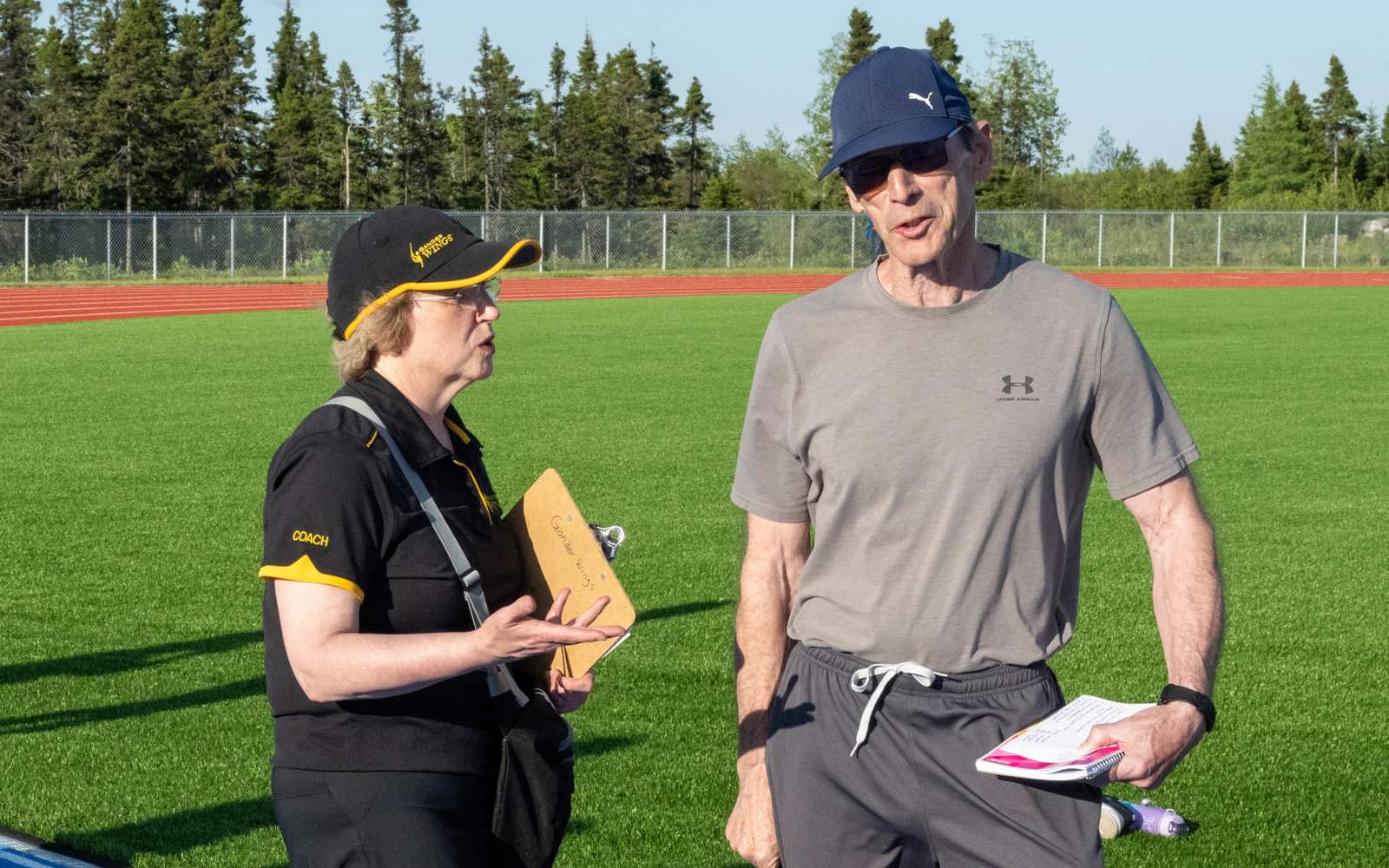
Our Volunteers Enrich Lives
Becoming a coach with Special Olympics has many rewards. Along the way, we are always here to help. Our training programs are designed to ensure that you are able to meet the needs of any athlete involved in our organization with both confidence and skill.
Special Olympics Canada sees our volunteers coaching in two main areas; those that are preparing athletes for Provincial/Territorial, National and World Games, and those who will work with athletes in their community who wish to be active for life.
For this reason, we provide coach education that focuses on reaching the potential of both athletes and coaches in these two sporting areas.
- Athlete to Coach Ratios (updated Nov 2022)
- NCCP Code of Ethics
- Divisioning, Maximum Performance Rule (MPR) and Fair Play Rule (updated Mar 2022)
- Coaching Association of Canada & National Coaching Certification Program (NCCP)
- Special Olympics Resource Page
- Summer Heat Coaching Tips
- Athlete Sun Safety Resource
- Cybersecurity Resource for Volunteers
- Emergency Action Plan Template (updated July 2018)
- Athletics Equipment Purchase List (updated May 2022)
- Incident Report Form (updated May 2022)
- Equipment Purchase List
Coach & Volunteer Course Schedules & Getting Started!
-
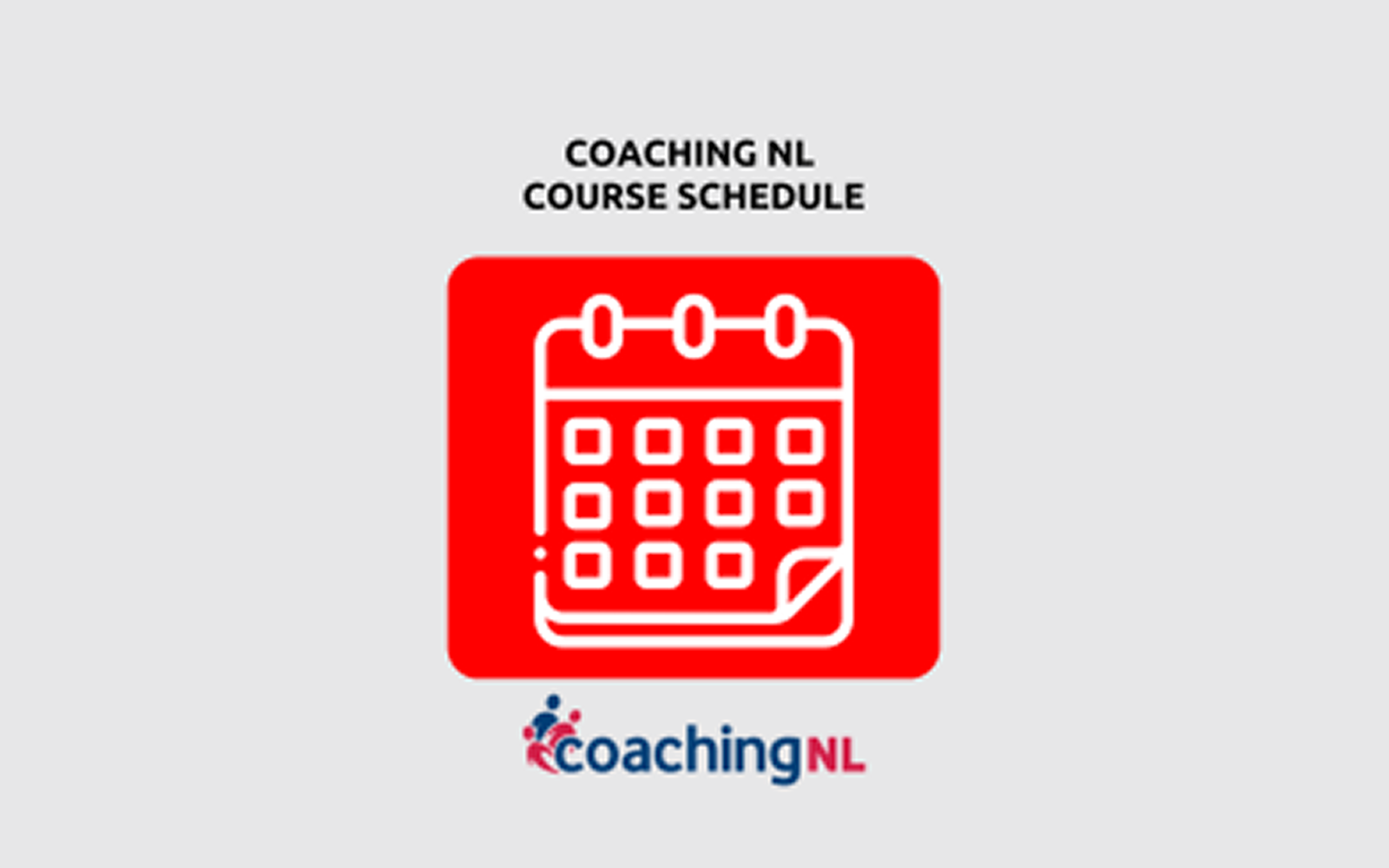 Coaching NL Course ScheduleVirtual and in-person schedule for courses offered by Coaching NL.
Coaching NL Course ScheduleVirtual and in-person schedule for courses offered by Coaching NL. -
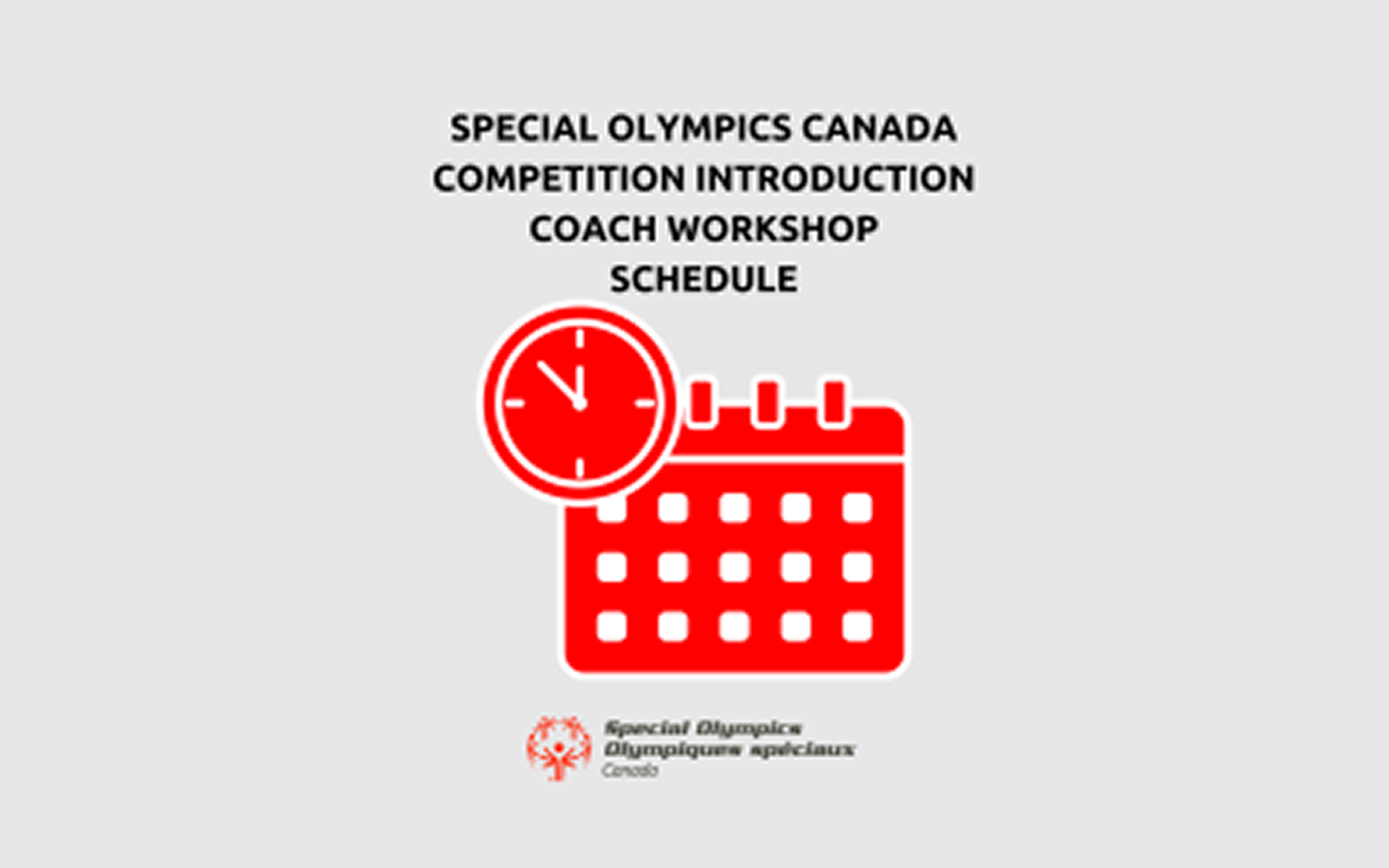 Special Olympics Canada Competition Introduction Coach Workshop ScheduleVirtual & In-person Special Olympics Canada Competition Introduction Coach Workshop Schedule. Also known as SOC Comp-Intro Coach Course or SOC Competition Coaching Course.
Special Olympics Canada Competition Introduction Coach Workshop ScheduleVirtual & In-person Special Olympics Canada Competition Introduction Coach Workshop Schedule. Also known as SOC Comp-Intro Coach Course or SOC Competition Coaching Course. -
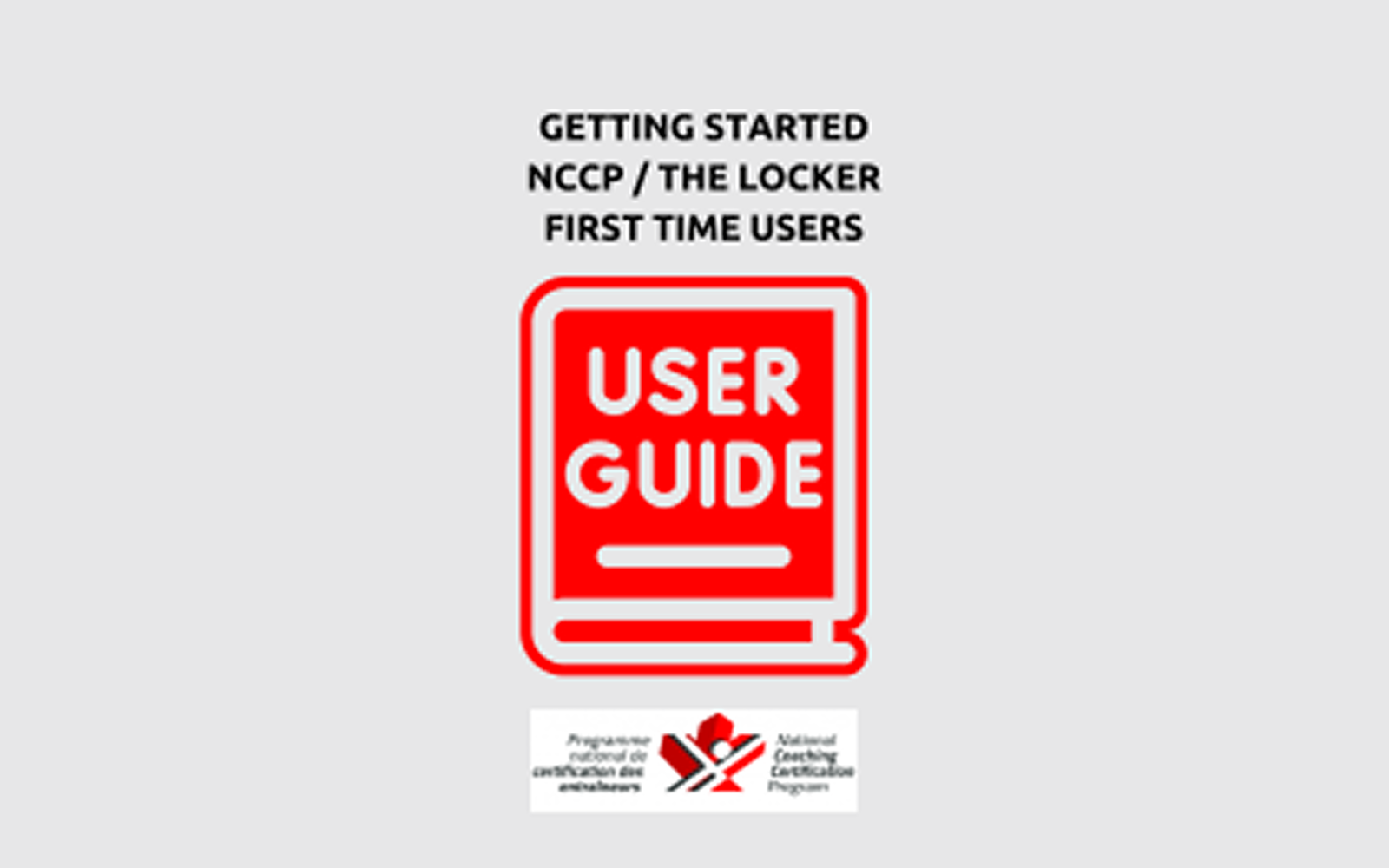 Getting Started NCCP / The Locker First Time UsersDon't have an NCCP? Use this guide to get started!
Getting Started NCCP / The Locker First Time UsersDon't have an NCCP? Use this guide to get started!
Minimum Standard Training
-
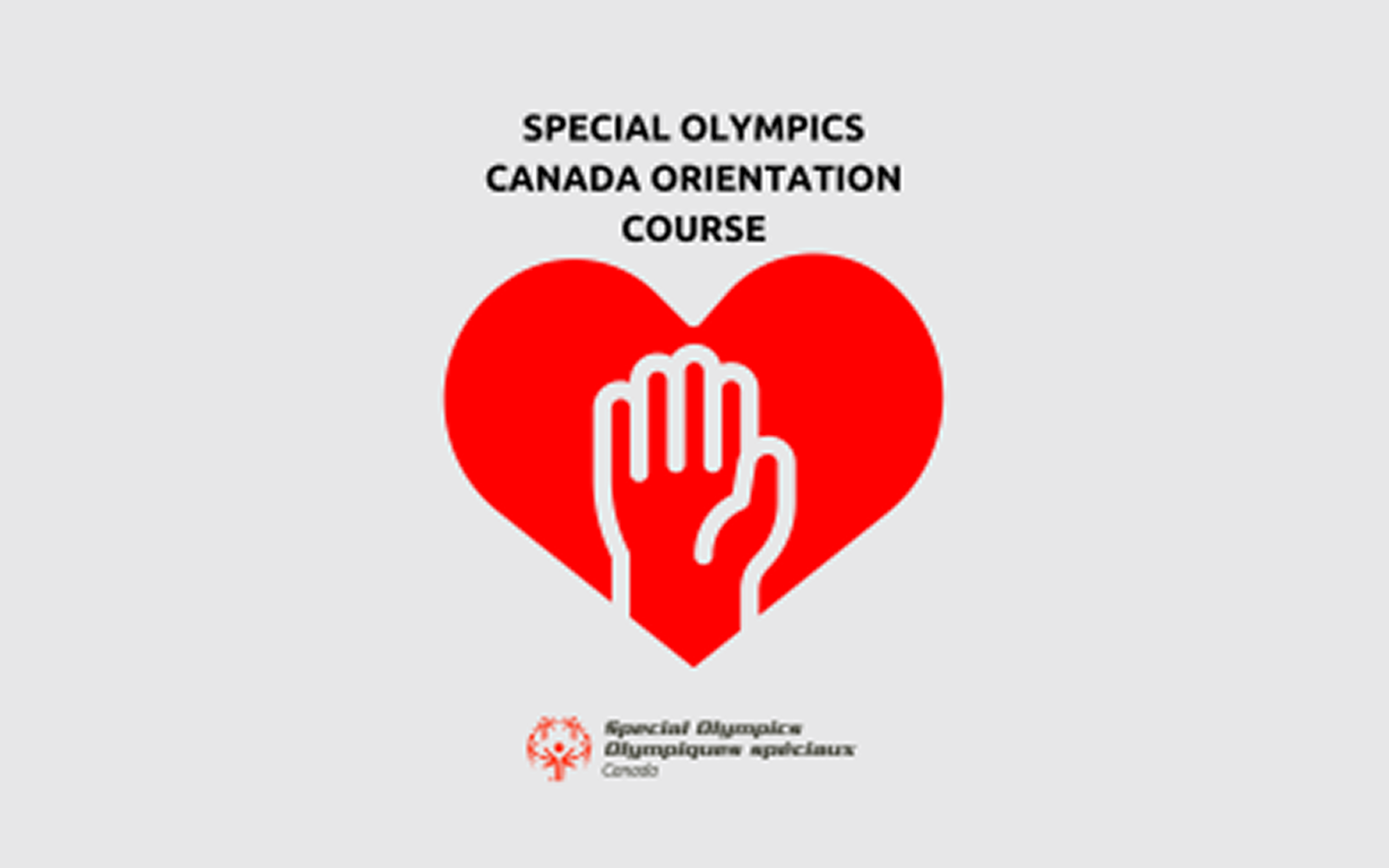 Special Olympics Canada Orientation CourseWithin 1 month of program placement.
Special Olympics Canada Orientation CourseWithin 1 month of program placement. -
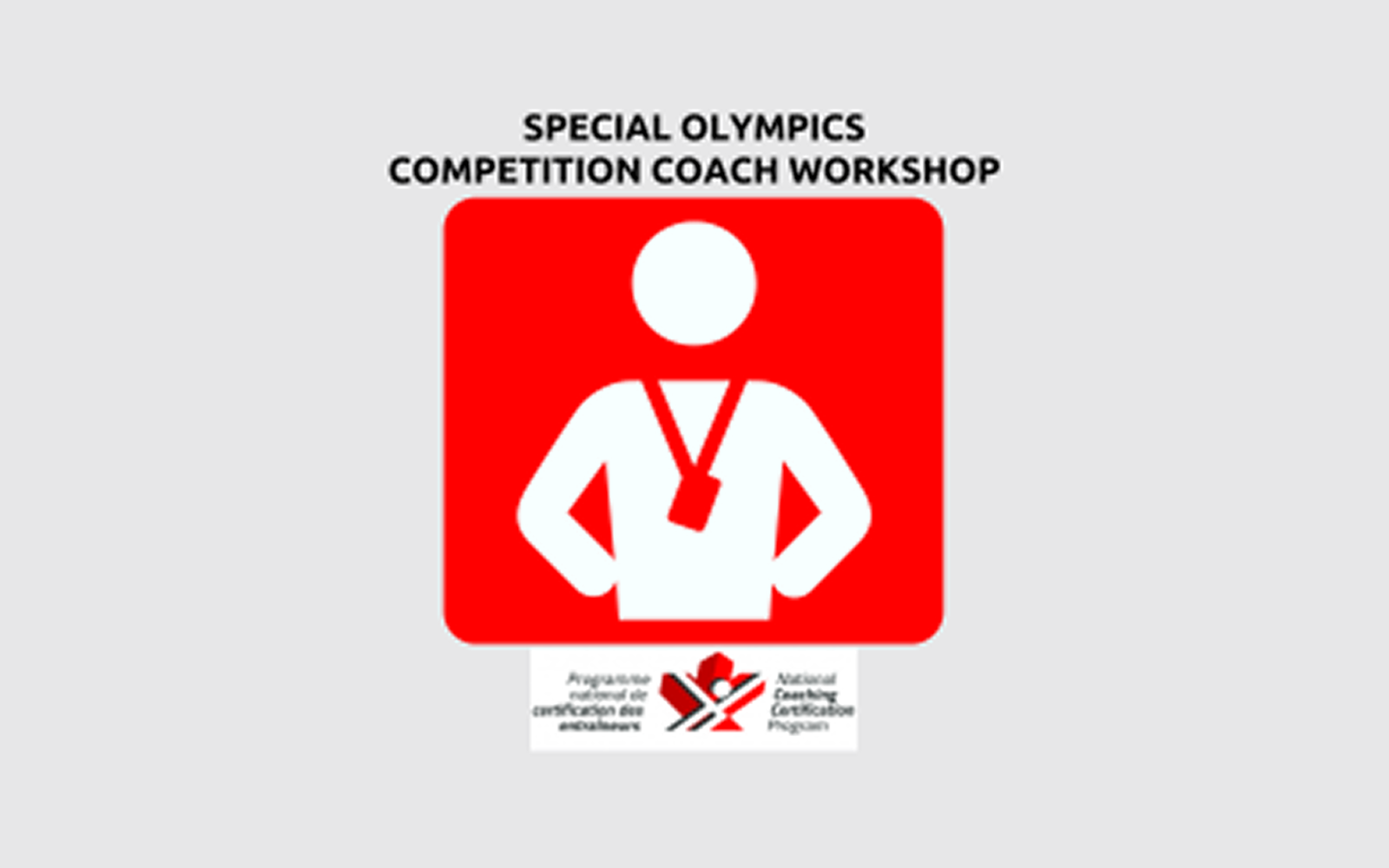 Special Olympics Competition Coach WorkshopRequired for all coaches within 1 year of onboarding. Available in-person & online.
Special Olympics Competition Coach WorkshopRequired for all coaches within 1 year of onboarding. Available in-person & online. -
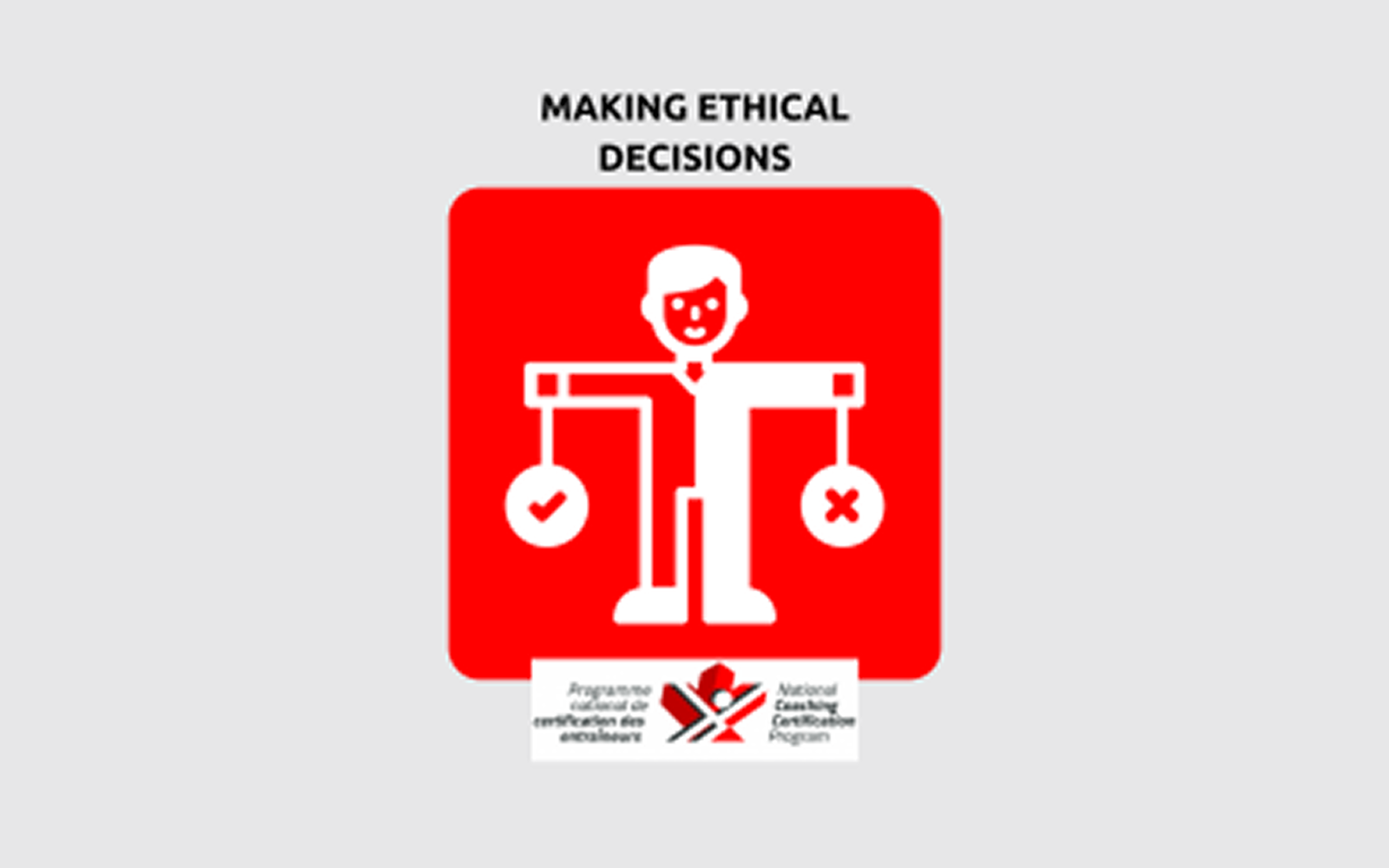 Making Ethical DecisionsRequired for all coaches within 1 year of onboarding. Available in-person & online.
Making Ethical DecisionsRequired for all coaches within 1 year of onboarding. Available in-person & online.
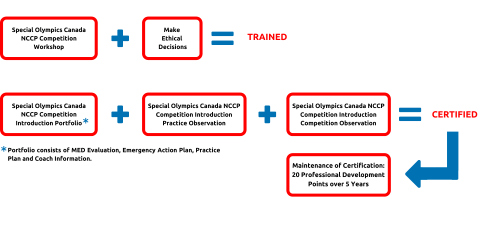
Recommended for All Volunteers
-
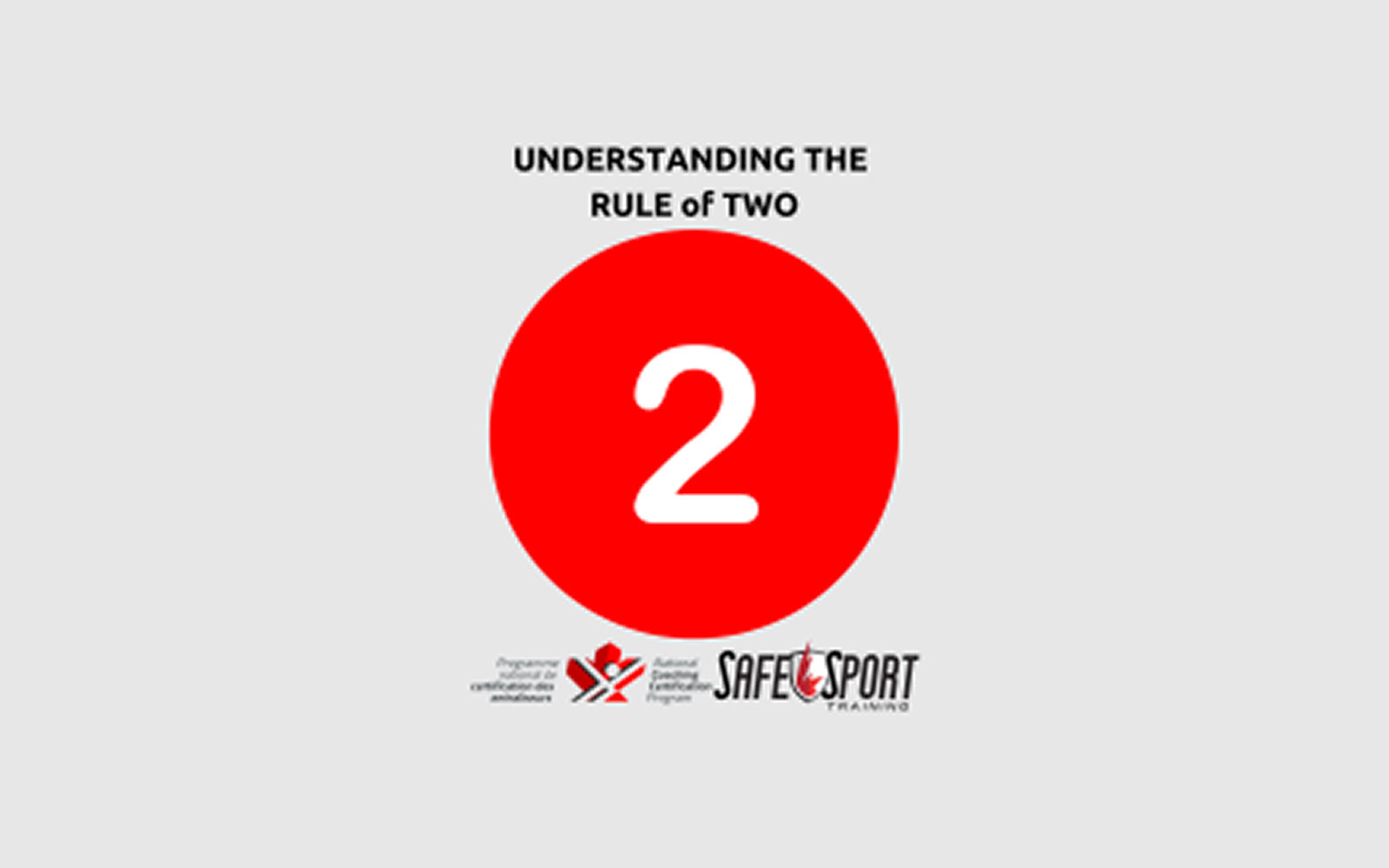 Understanding the Rule of TwoHelping to better understand the Rule of Two.
Understanding the Rule of TwoHelping to better understand the Rule of Two. -
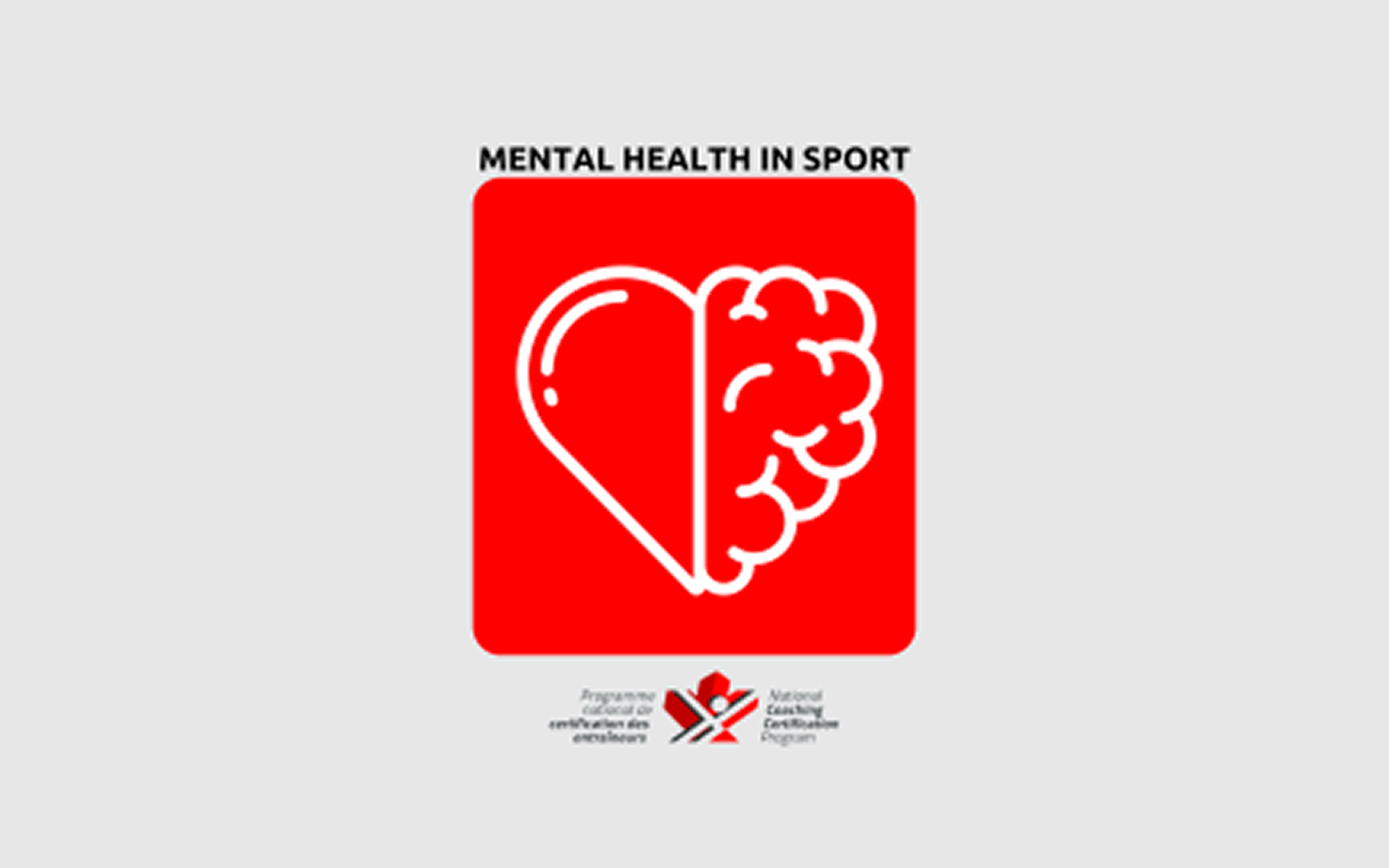 Mental Health in SportEducates coaches about mental health to support the well-being of themselves and their athletes.
Mental Health in SportEducates coaches about mental health to support the well-being of themselves and their athletes. -
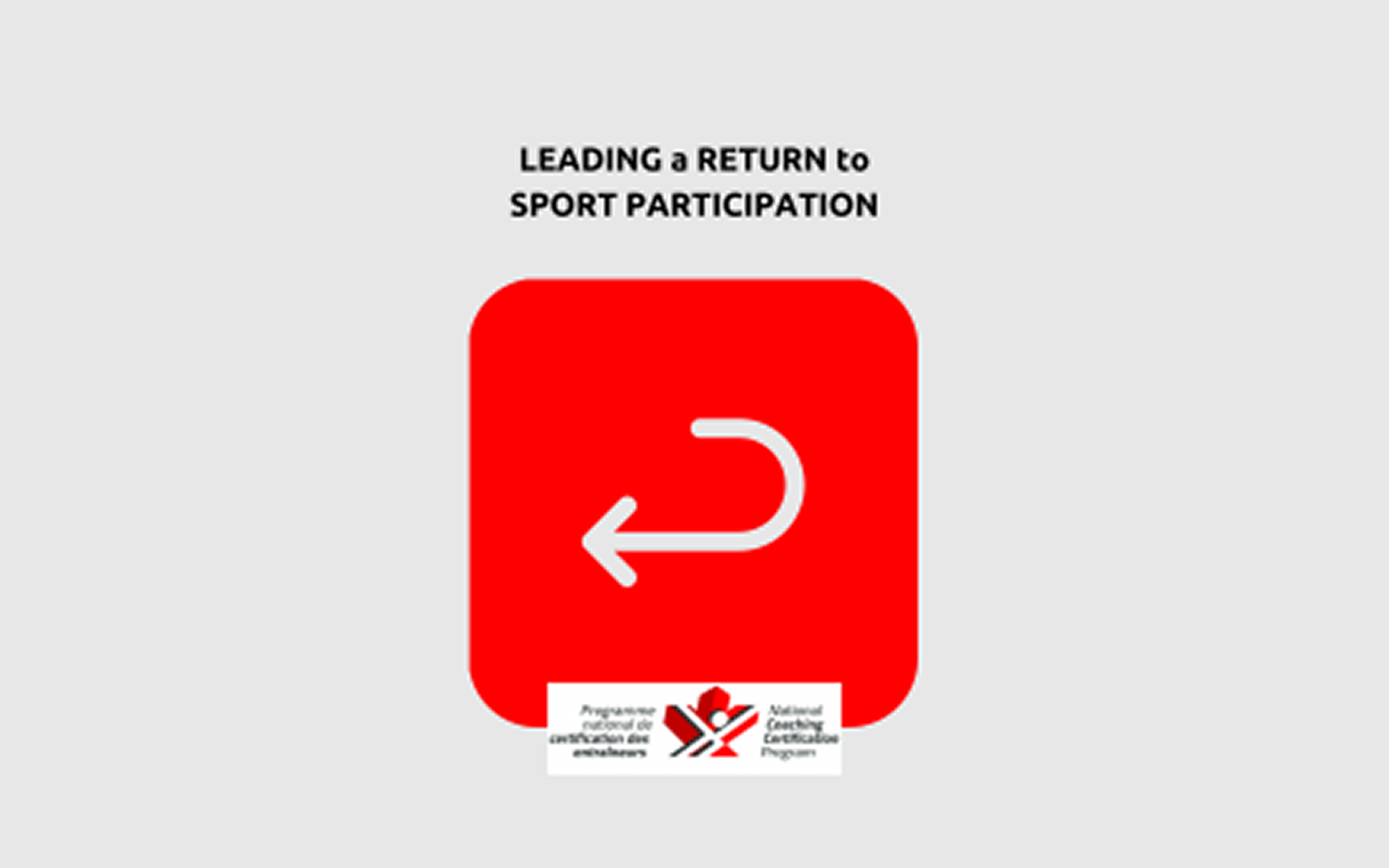 Leading a Return to Sport ParticipationHelping to prepare before returning to in-person programs & competitions.
Leading a Return to Sport ParticipationHelping to prepare before returning to in-person programs & competitions.
-
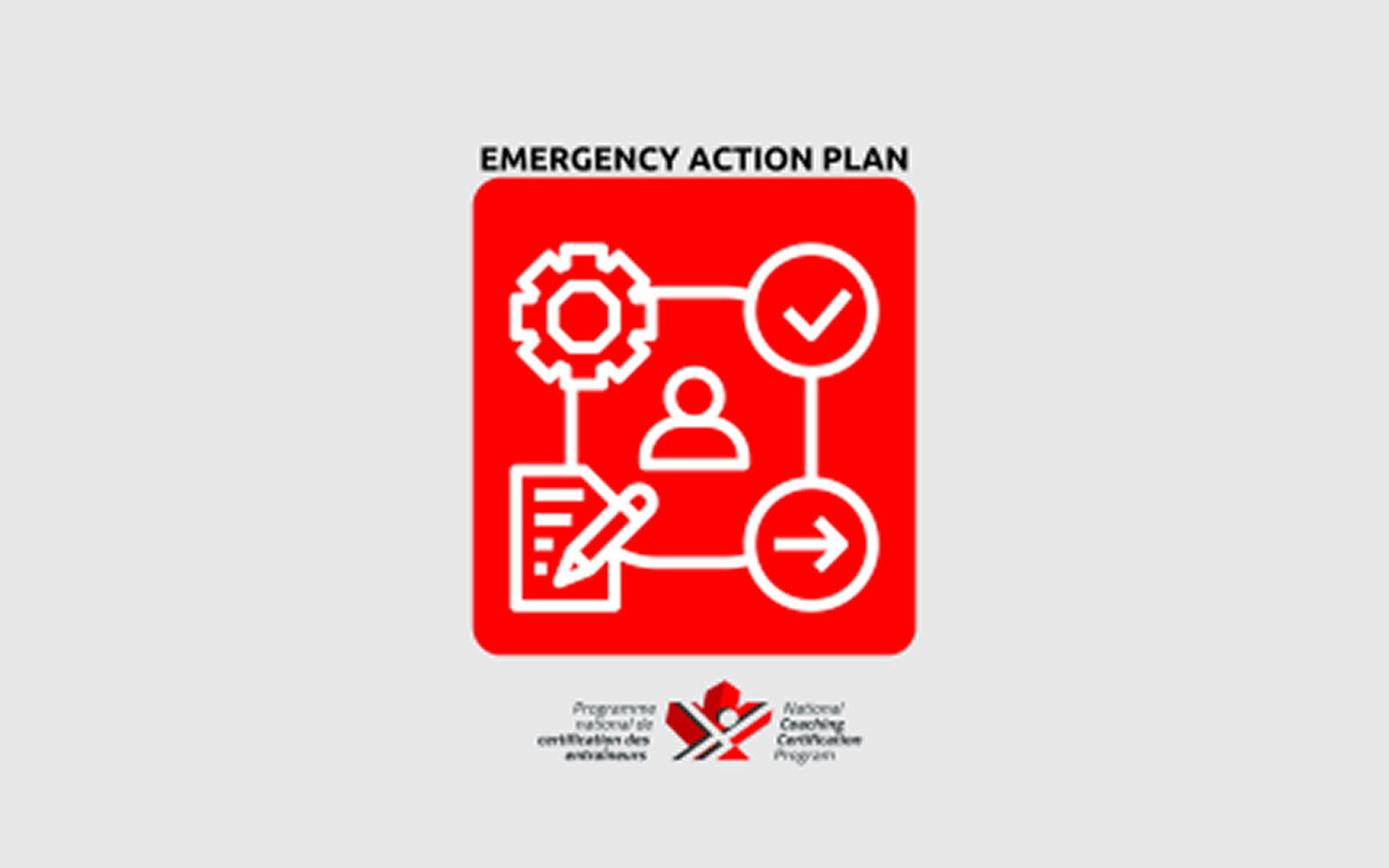 Emergency Action PlanPrepares coaches to respond calmly, quickly & effectively during a variety of situations.
Emergency Action PlanPrepares coaches to respond calmly, quickly & effectively during a variety of situations. -
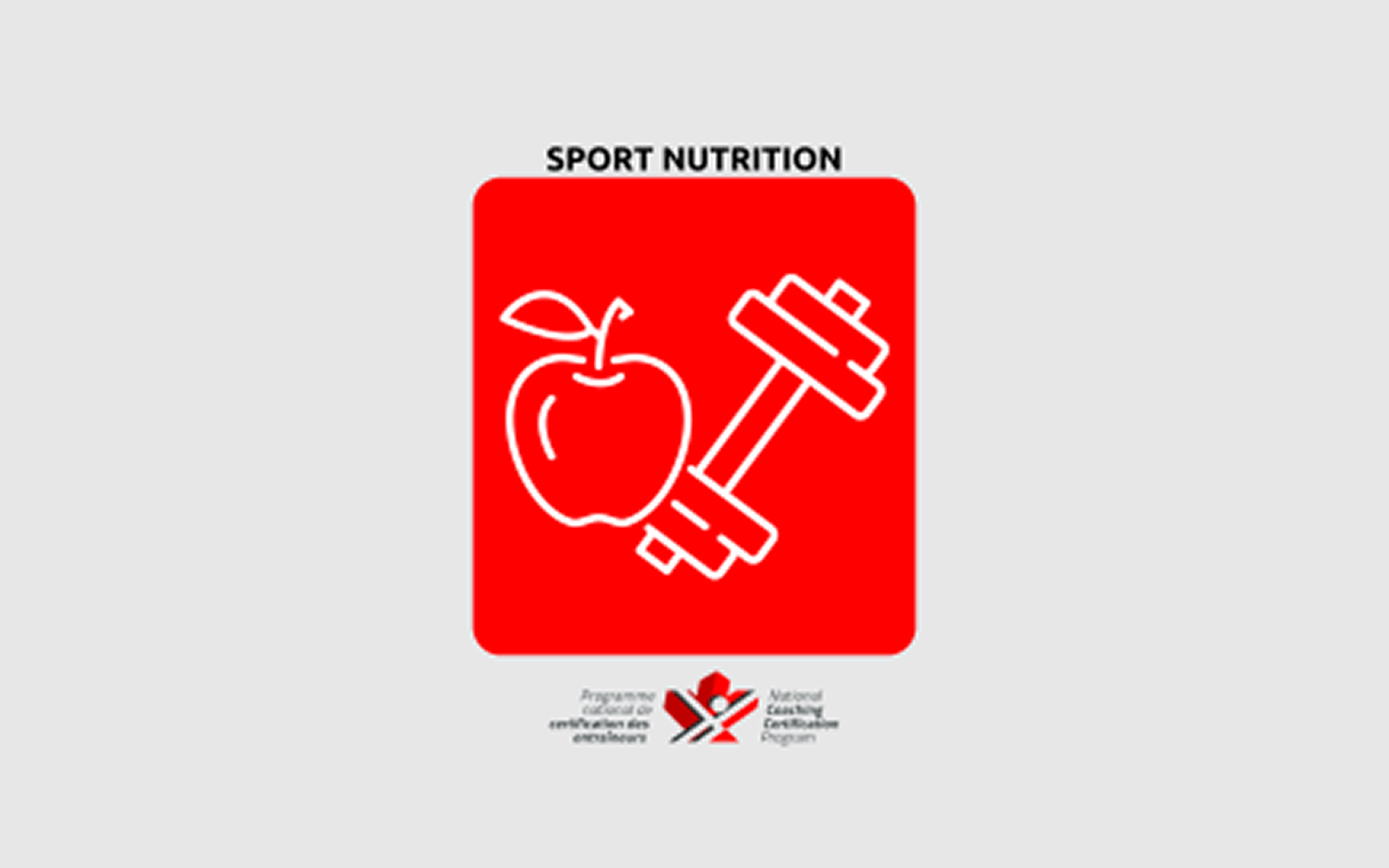 Sport NutritionAdditional eLearning module complementing the NCCP Nutrition Course.
Sport NutritionAdditional eLearning module complementing the NCCP Nutrition Course. -
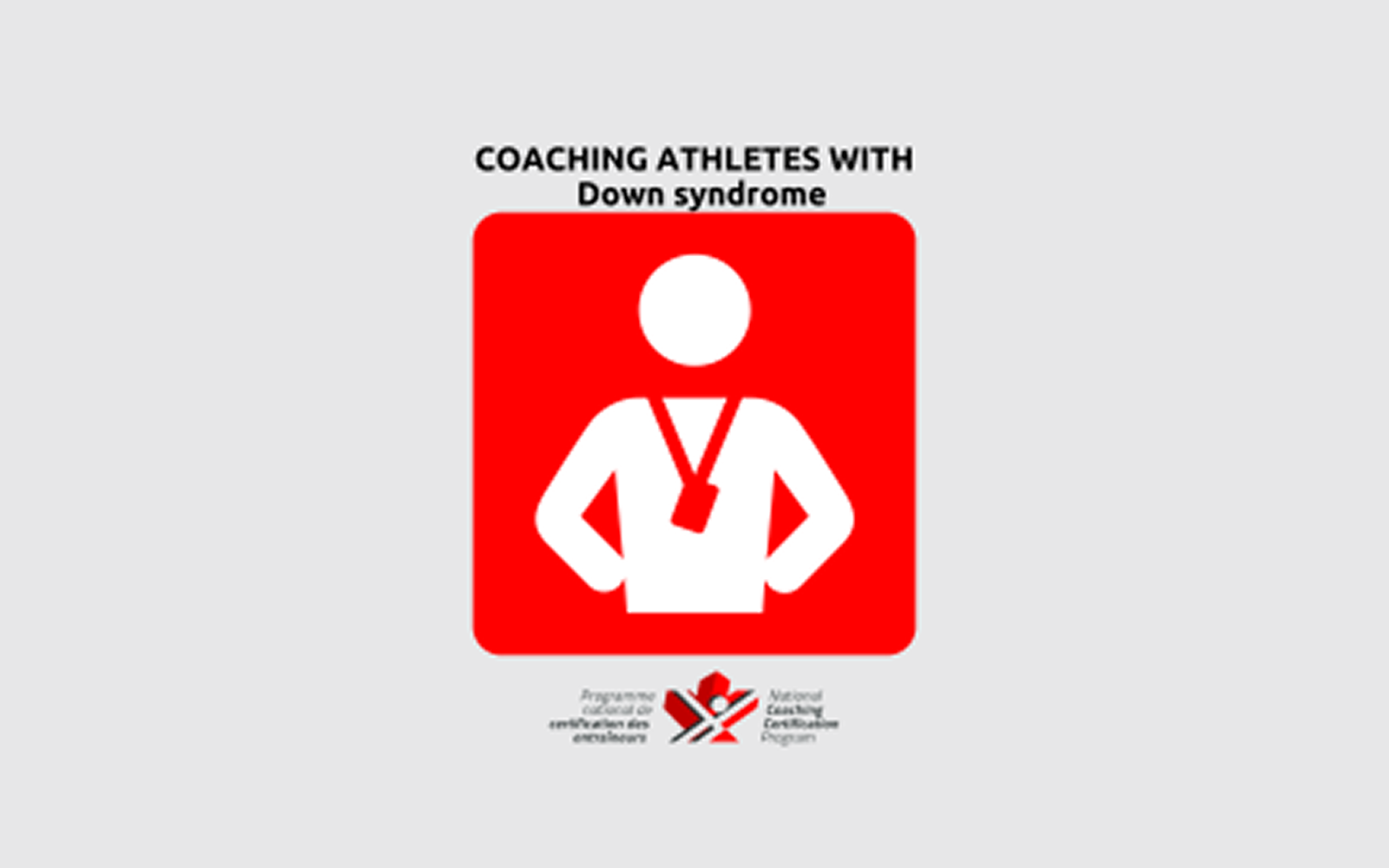 Coaching Athletes with Down SyndromeLearn how to empower athletes with down syndrome to become active & successful participants in sport.
Coaching Athletes with Down SyndromeLearn how to empower athletes with down syndrome to become active & successful participants in sport.
-
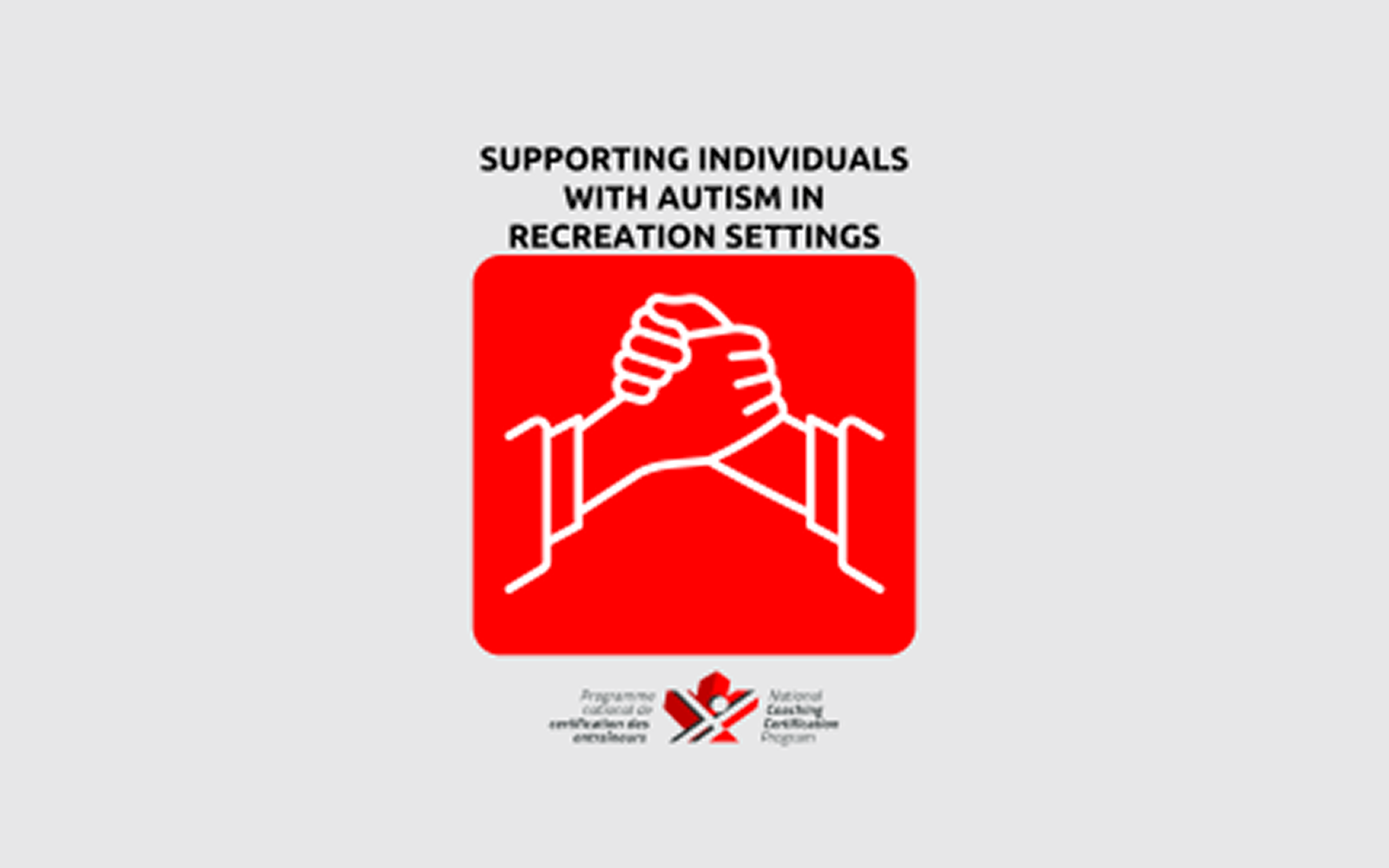 Supporting Individuals with Autism in Recreation SettingsThe course focuses on equipping coaches with skills & strategies to enrich the sporting experience for athletes.
Supporting Individuals with Autism in Recreation SettingsThe course focuses on equipping coaches with skills & strategies to enrich the sporting experience for athletes. -
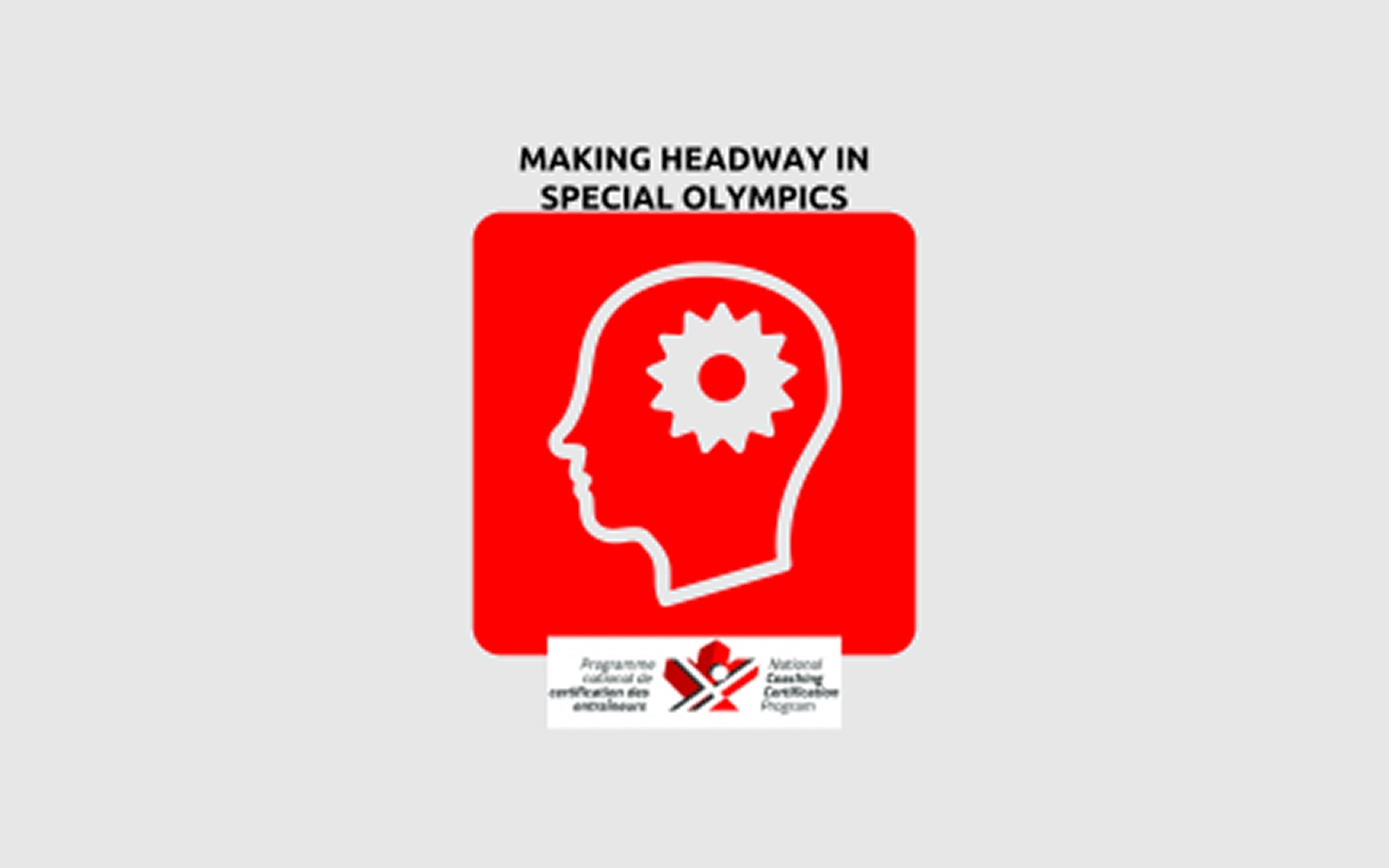 Making Headway in Special OlympicsMandatory e-learning course for all coaches within 1 year of onboarding.
Making Headway in Special OlympicsMandatory e-learning course for all coaches within 1 year of onboarding. -
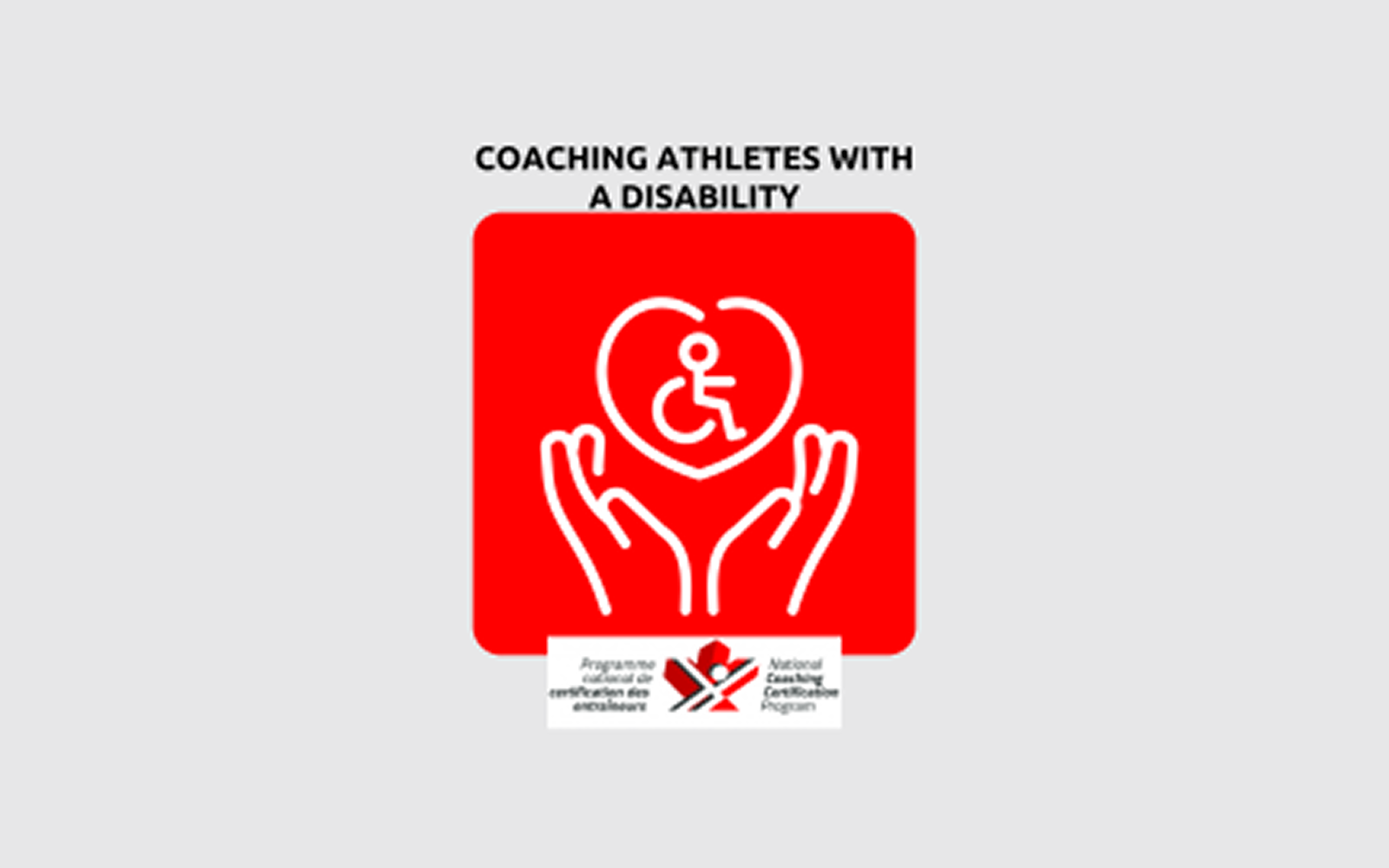 Coaching Athletes with a DisabilityAdditional eLearning module.
Coaching Athletes with a DisabilityAdditional eLearning module.
Additional E-Learning Opportunities
Additional Coaching Association of Canada (CAC) eLearning Modules
There are a number of modules, developed by Special Olympics Canada and/or Coaching Association of Canada that have been launched on the Locker. Upon completion, it will be recorded on your coach’s NCCP transcript. The below modules are not required but suggested, as they are resources for managing risk at programs and competitions.
You will need to Log-in to The Locker (if you need your NCCP# and password, email our Program Director) and select the e-learning tab. Some modules are listed on the drop-down menu under "Multi-sport" and others are listed under "Special Olympics". There is no fee for those listed under Special Olympics. Other modules may or may not have a fee associated with them.
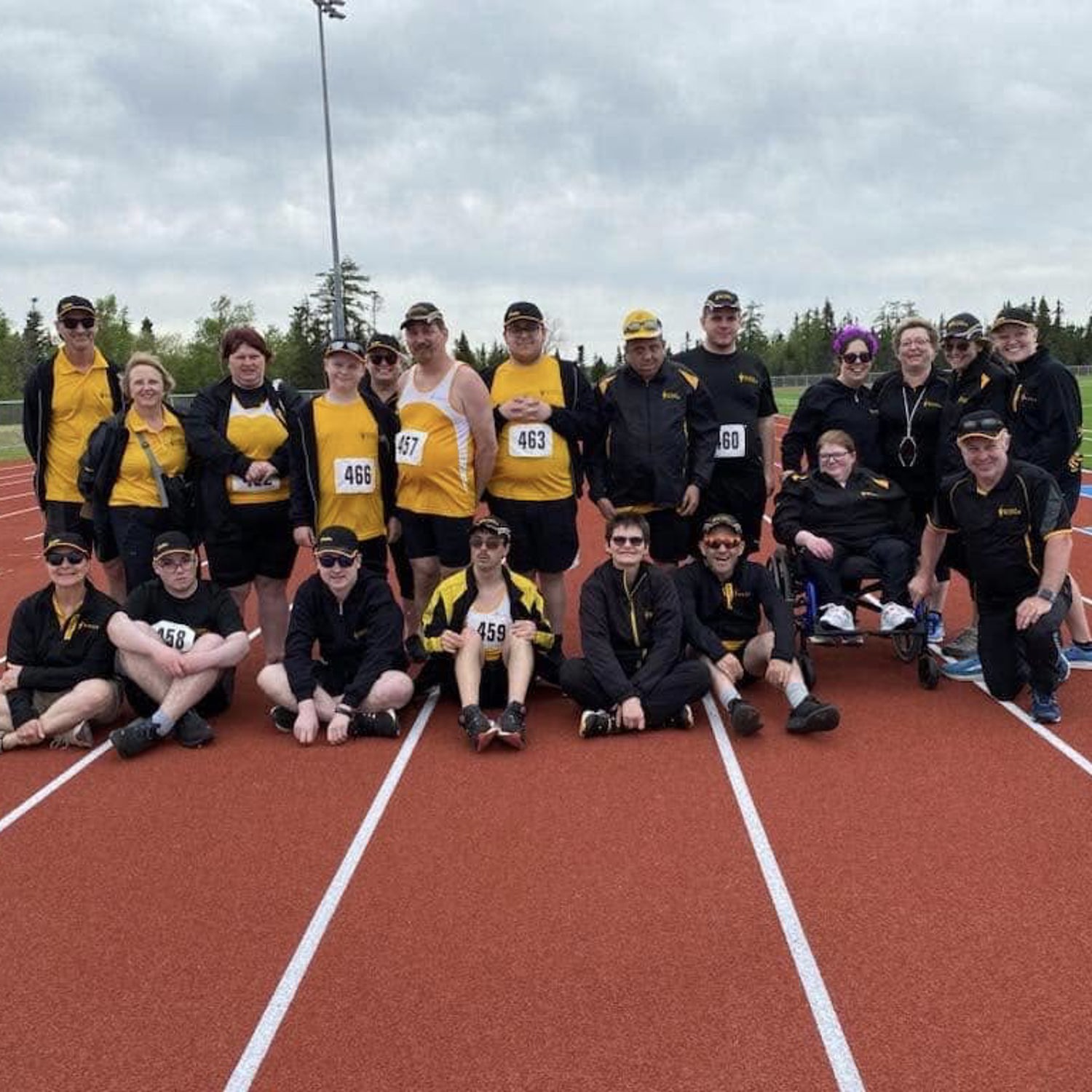

The Diversity and Inclusion in Action eLearning module is designed for volunteers, coaches, staff, board members, and/or other stakeholders of your organization. In this module, you will learn how to contribute to the success of an organization that reflects, respects, and promotes diversity and inclusion.
This module will take you approximately 30‐40 minutes to complete.
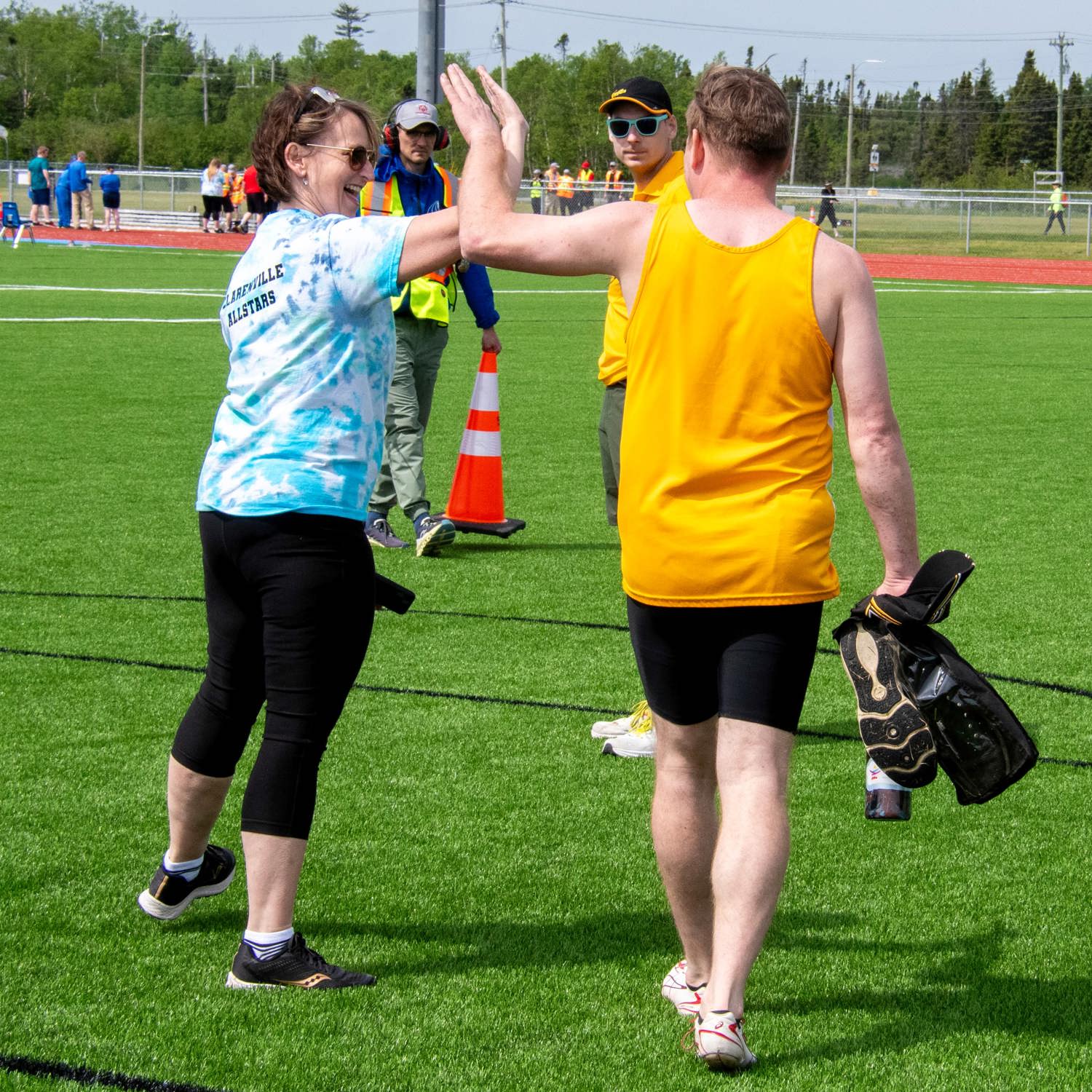

Overview: Special Olympics Canada has developed modules for coaches and volunteers working with individuals with an intellectual disability. The content in these courses focus on equipping you with skills and strategies to enrich the sporting experience for the athletes you coach. If you want to learn more about working with athletes with an intellectual disability Special Olympics provides NCCP workshops in multiple contexts.
The Allyship: Get Ready To Up Your Game! eLearning module is designed for volunteers, athletes, coaches, staff, board members, and others involved in Special Olympics in Canada. In this module, you will learn how to contribute to the success of Special Olympics in Canada by helping create a climate that reflects, respects, and promotes equity, diversity, and inclusion through your actions as an ally. This module will take you approximately one hour to complete.
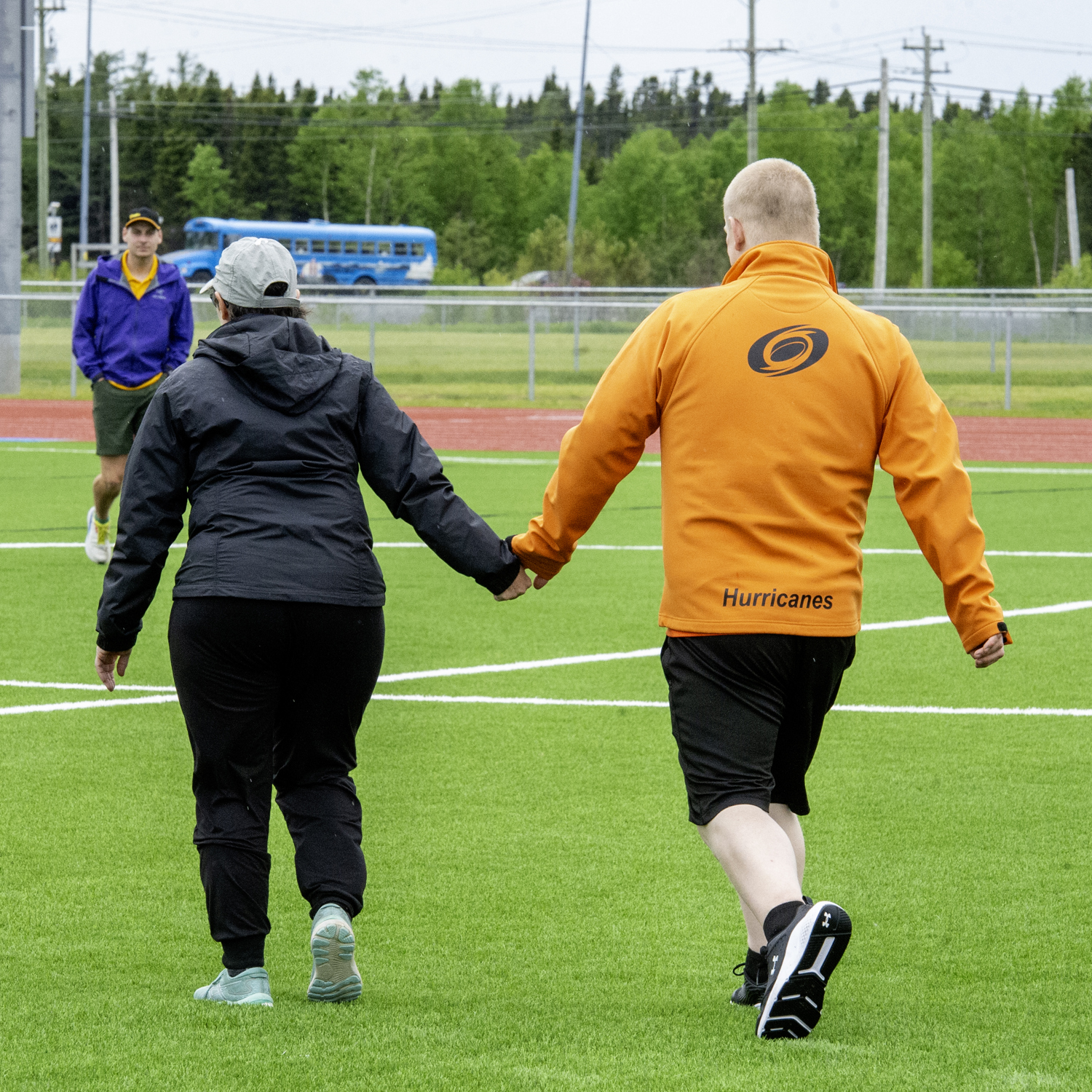
Did you know 80% of teens reportedly experience some form of teen dating violence? As a coach, it’s important to be equipped with tools to understand and recognize the signs. The CAC’s new Support Through Sport eLearning series was designed to empower coaches to recognize and take action when it is suspected that a teen sport participant is involved in an unhealthy dating relationship.
Understanding Teen Dating Violence is the foundational module in this series and focuses on creating healthy environments for sports participants between the ages of 11 and 24 years. Coaches will learn to identify elements of healthy relationships, define teen dating violence, and take action when teen dating violence is suspected or known. The 30-40 minute module is now available for free in the eLearning section of the Locker. Visit for more information, including reference materials, advocacy resources, and other information.
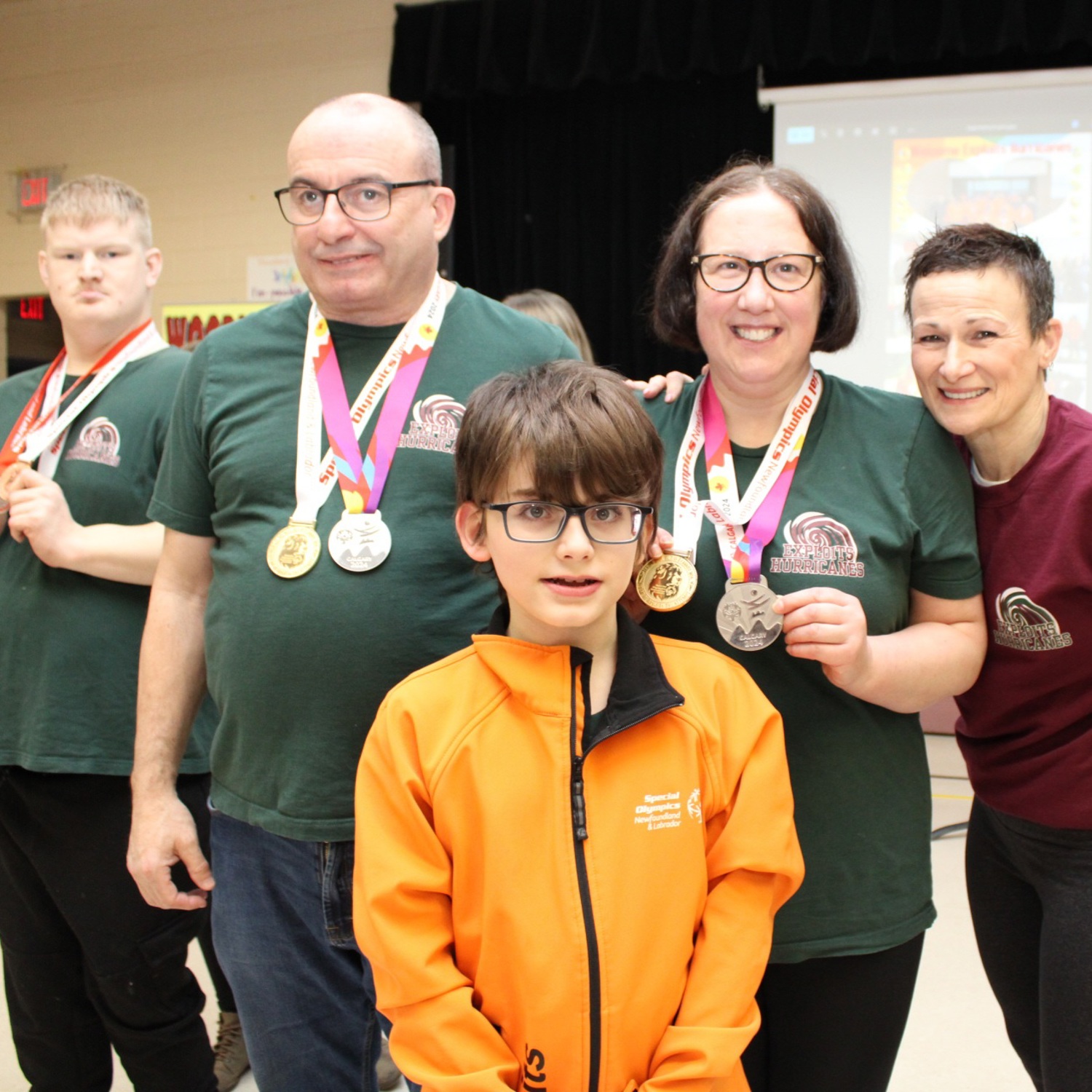

This is a Coaching Association of Canada's External Partner Module. This Module is Only Available in English.
Next Gen Men (NGM) is a Canadian leader in engaging and empowering boys and men on topics like mental health and gender-based violence. This course, Raising Next Gen Men, is for parents, educators, coaches, youth workers, and anyone who understands how much difference one, well-equipped mentor can make in young people’s lives. It will help you understand how boys shape, and are shaped by, a wide array of gender-based cultural norms, by delving into academic research in the field, young masculinity in popular culture, and real stories about boys.
Coaches who are maintaining their certified status will receive 3 Professional Development (PD) points upon completing this eLearning module.
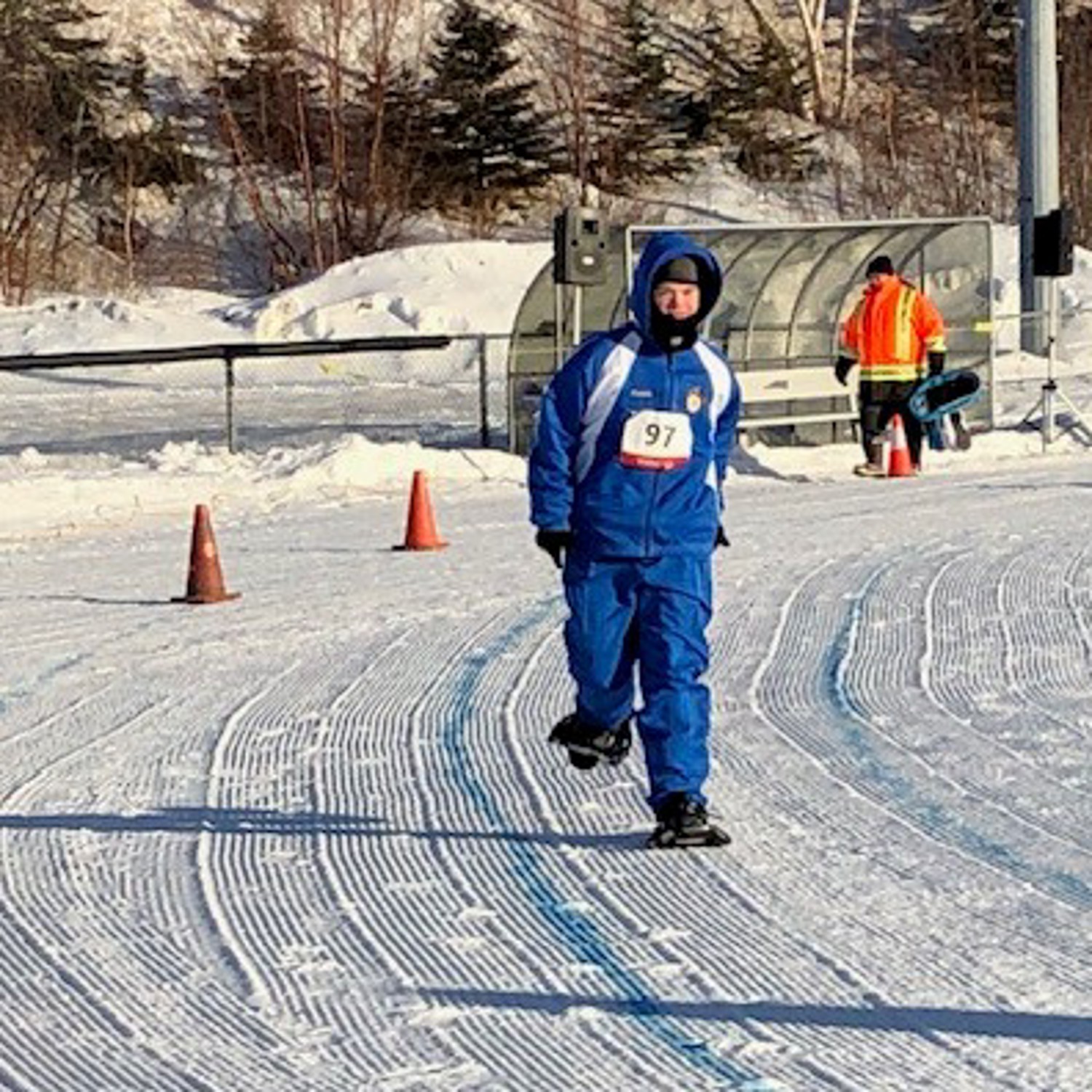

As a coach, learning about asthma serves an important purpose: you are making sports safer for more people to participate in and directly promoting inclusivity for those affected by asthma. Additionally, when you are confident in your abilities to identify and respond to an asthma attack, participants and their parents/guardians feel more comfortable taking part in community sports. So, thank you! NCCP Certified coaches, or Trained coaches that qualify, will receive 1 PD point credit toward their NCCP Maintenance of Certification upon completion of this module.
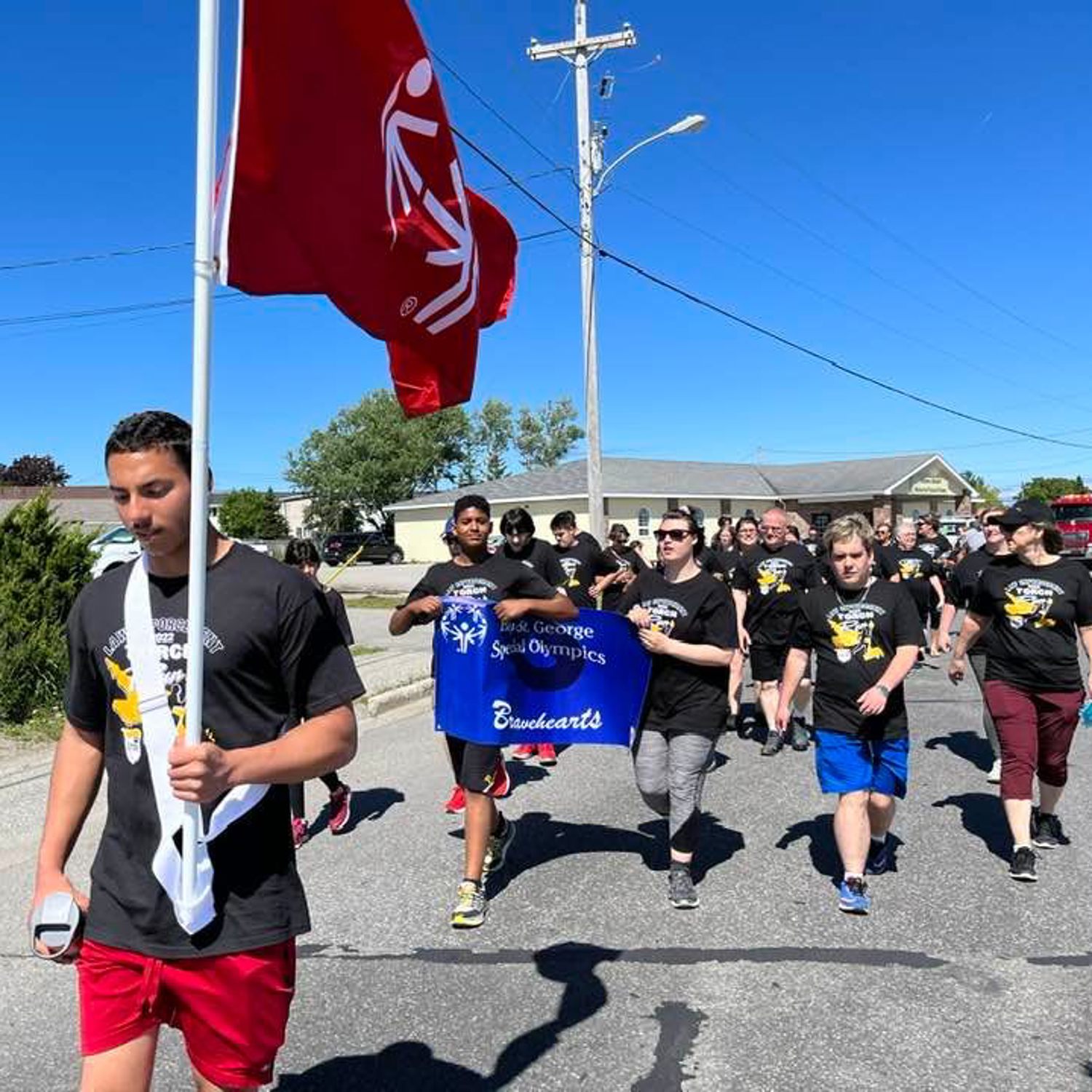

Coaches in Canada play an integral role in creating a fair and inclusive environment for their sport. While the impact of racism in sports and coaching can be far-reaching, so can the effects of anti-racism coaching education. After completing the Anti-racism in Coaching eLearning module, you will be able to:
- Build your knowledge of issues related to race and racism in Canada that affect coaching
- Expand your understanding of how to be an anti-racist coach
- Cultivate your skills in supporting racialized participants in sport
Coaches who are maintaining their NCCP certified or trained status will earn two NCCP PD points upon completion of this module. This module will take approximately 60-75 minutes to complete. You may complete the module in multiple sittings. Once you have completed Anti-racism in Coaching, the module will appear on your coach transcript in the Locker.
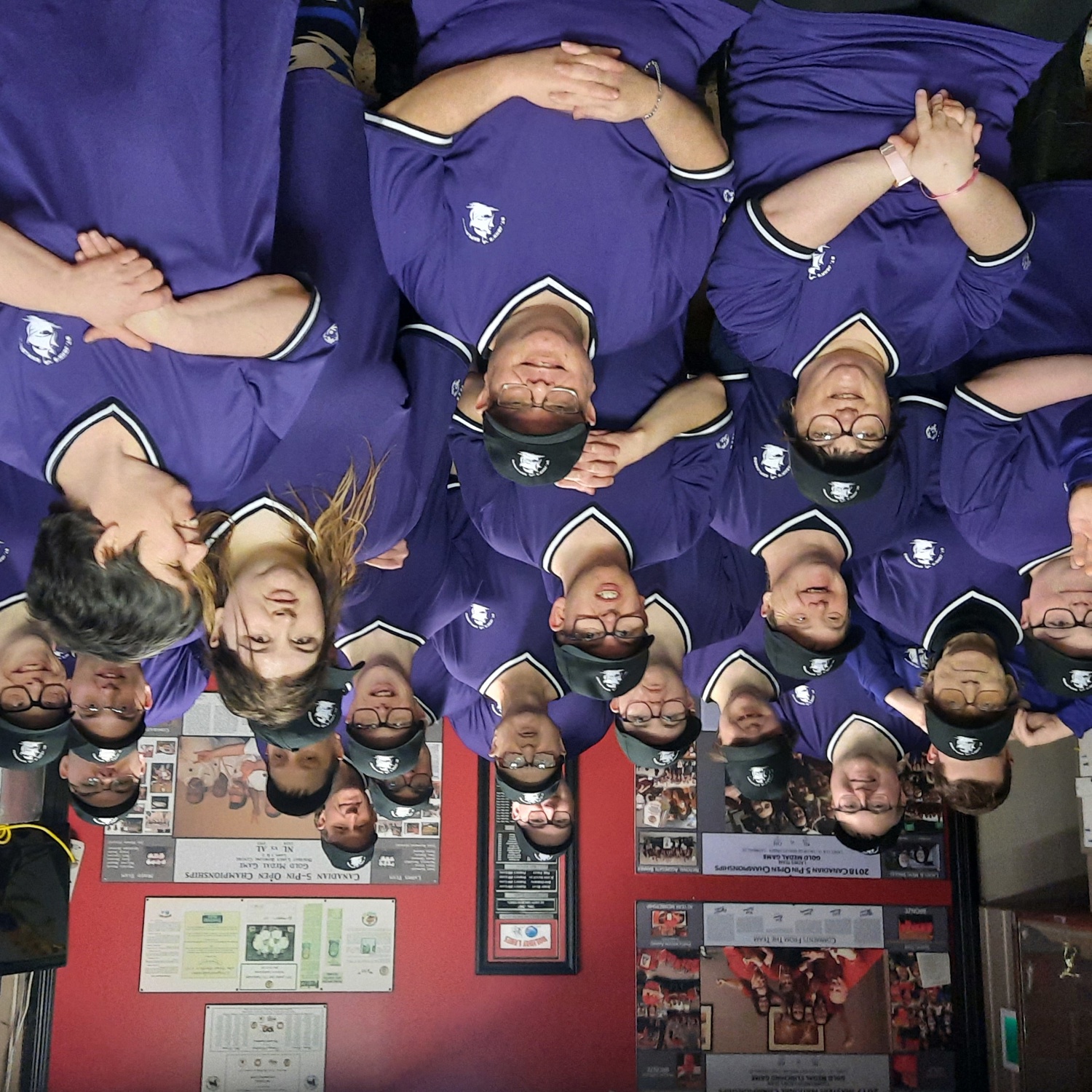

Participant-centered coaching strategies are an effective way to establish a safe and inclusive sport culture. By placing participants at the centre of the coaching process, coaches can promote growth and athletic development, foster creativity and learning, and protect participants from harm.
This eLearning module will take approximately 40 – 50 minutes to complete. You may complete the module in multiple sittings. Once you have completed NCCP Creating a Positive Sport Environment, the module will appear in your coach transcript in the Locker.
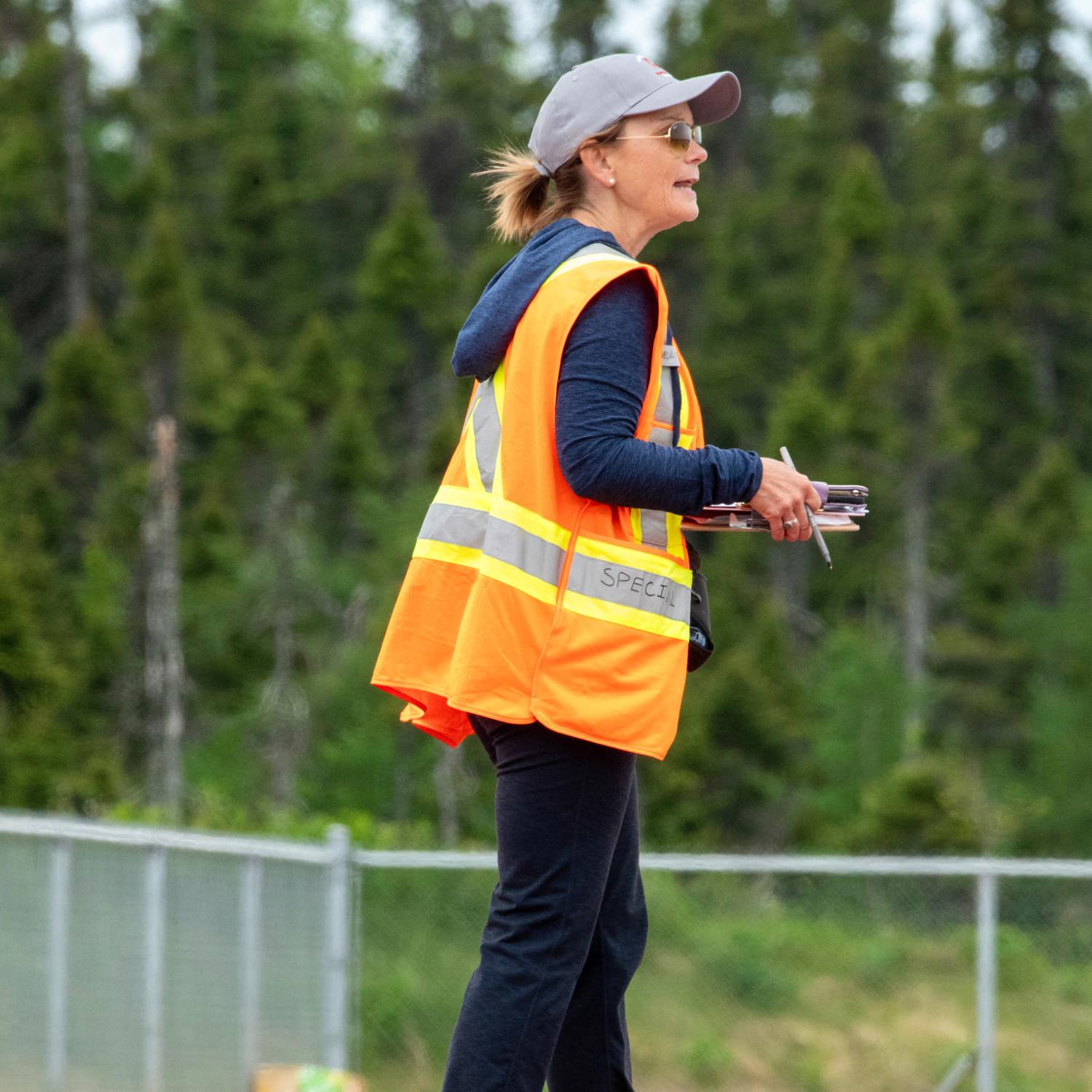

The NCCP Coach Initiation in Sport module introduces new or experienced coaches to the foundational skills of coaching, such as long-term athlete development, ethics, coaching motivation, and athlete safety and wellness. It also teaches the key coaching concepts and educational tools that are the foundation of the NCCP.
The CAC is proud to present this module in partnership with Decathlon Canada, a retailer and creator of sports gear, apparel and experiences. This partnership will empower coaches with knowledge and skills to enhance the experience of all participants in sport. For only $15, this excellent informational resource will take approximately one hour to complete. If you have a promo code for this module, you can redeem it in the payment step for the module.
Attention Baseball Coaches: if you are looking for Coach Initiation in Baseball, Rally Cap Coach, and Baseball Fundamentals, please go to: http://nccp.baseball.ca.
Additional E-Learning Opportunities for Officials
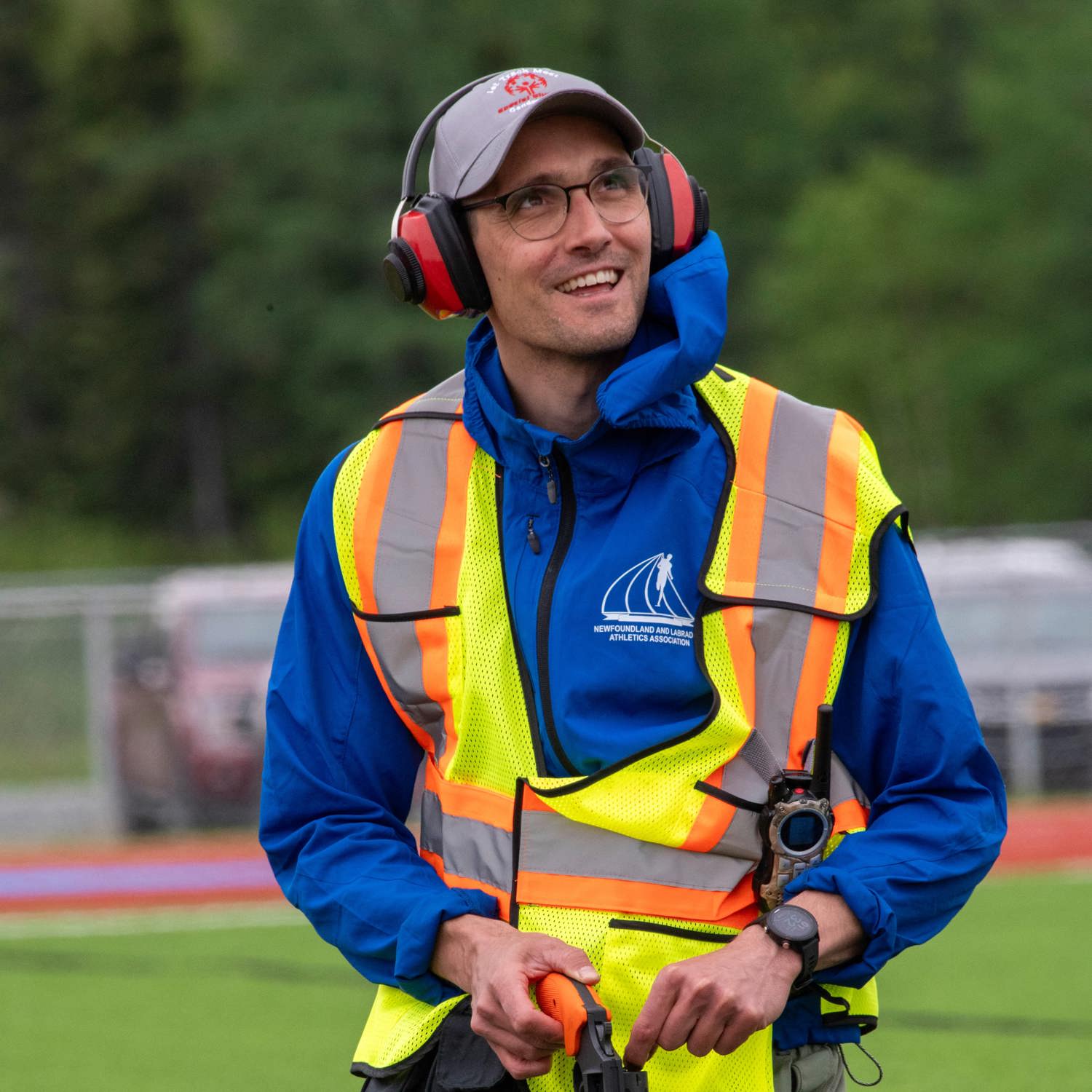

The Decision Making for Officials eLearning module is designed for officials officiating at the development level. There is a fee of associated with this course. As an official, you can have a profound impact on the outcome of a game. The essence of a good official is both tangible—knowing and enforcing the rules of the sport—and intangible—making good judgements and effectively communicating your decision. This module is intended to give you insight into the decision-making process and help you develop knowledge and skills to effectively make and communicate decisions when officiating.
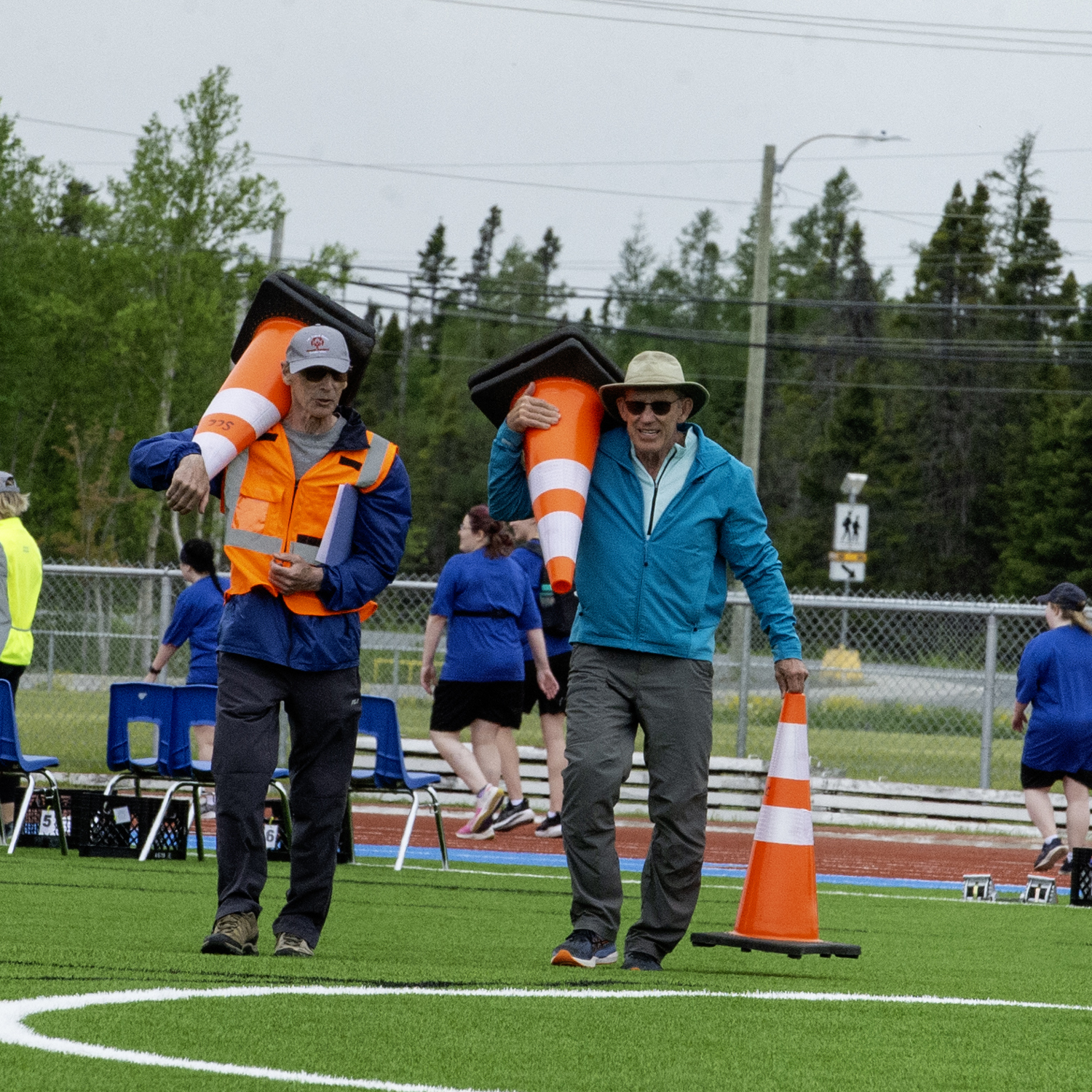

The Skilled Interaction with Coaches for Officials eLearning module is designed for officials officiating at the development level. There is a fee associated with this course. As an official, you are required to make rapid decisions in an ambiguous environment where player and coach emotions often run high (Simmons & Cunningham, 2013). It is inevitable that players and coaches will disagree with some of your decisions and you will be required to interact skillfully with them to minimize and manage conflict. The best officials are able to manage contests without dominating them (MacMahon & Plessner, 2008). This module is intended to give you the insight you need to effectively interact with coaches and players and officiate the game with interpersonal ease.
Additional Resources
Emergency First Aid, CPR, and AED Training
In-Person Event Location: Check your local area to see if you can enroll in a course
SOC Athlete Leadership Facilitator Training
Timeline: Registered volunteers should complete within the first year of becoming a volunteer with SONL
Required by:
Special Olympics NL asks that all Athlete Leadership Facilitators complete Special Olympics Canada's Core Training module for Facilitators. As the Athlete Leadership program continues to grow in Canada there is a need to ensure that the delivery of the content and workshops is of high quality and consistent across the country.
The module is designed to help facilitator candidates develop the required skills to successfully facilitate courses in Special Olympics Canada's Athlete Leadership Program.
Once this module is complete, learning facilitators will be able to:
- Describe the Special Olympics Athlete Leadership Program in Canada
- List the key steps in preparing to facilitate an Athlete Leadership course
- Explain the characteristics and skills of an effective facilitator
- Describe approaches for managing challenging scenarios in the classroom
This module takes approximately 30-40 minutes to complete and is delivered as an online course.
If this is your first time signing in to the Volunteer Orientation Platform please follow the instructions below.
Learning Facilitator Pathway
Step 1 - Completion of Core Training for Athlete Leadership Learning Facilitators (online)
Step 2 - Participate in course content training or a train-the-trainer workshop (for each specific ALPS course)
Step 3 - If possible, co-facilitate specific athlete leadership courses for athletes
Step 4 - Independently, facilitate specific athlete leadership courses for athletes
Training programs are designed to ensure that volunteers are able to meet the needs of any athlete involved in our organization with both confidence and skill.
There are two main coaching areas: (1) preparing athletes for Provincial, National, and World Games, and (2) working with athletes at the community level to create healthy and active lifestyles. We provide coach education for both of these sporting areas.
To receive sport technical knowledge, a Special Olympics coach must also participate in the sport-specific workshop. Special Olympics Canada does not run workshops pertaining to the technical aspects of Special Olympics sports. This is accomplished through our partnerships with national sport organizations (NSOs) and provincial/territorial sport organizations (P/TSOs).
Young Athletes Coach
Timelines for this training are the same as listed above for our community club coaches & volunteers:
- Special Olympics Canada Coaching Young Athletes Course
- NCCP Multi-Sport Fundamentals Movement Skills (FMS)
- NCCP Making Ethical Decisions (MED) Evaluated
- NCCP Safe Sport Training eLearning Module (Direct Athlete Contact)
- SOC Volunteer Orientation eLearning Module
Athlete Leadership Facilitator
- Special Olympics Canada's Core Training Module for Facilitators
- Safe Sport Training eLearning Module (Direct Athlete Contact)
How to Host Sport Competition Guides
(These guides are under development, please check back for details)
| Summer Sports | Winter Sports |
| Ten Pin Bowling | 5-Pin Bowling |
| Athletics (Track & Field) | Curling |
| Aquatics (Swimming) | Cross Country Skiing |
| Bocce | Figure Skating |
| Golf | Floor Hockey |
| Powerlifting | Snowshoeing |
| Rhythmic Gymnastics | Speed Skating |
| Soccer | |
| Softball |
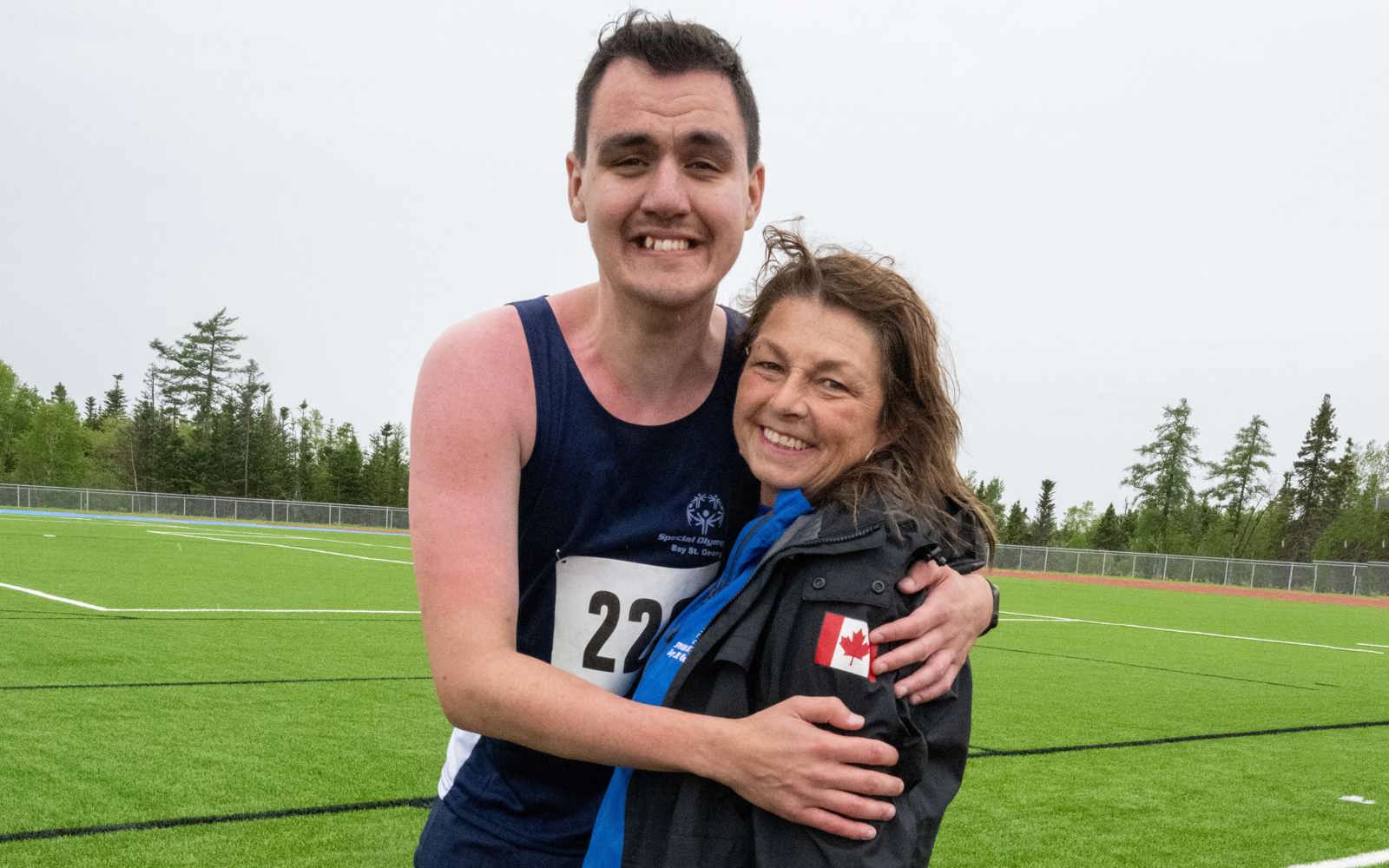
Volunteer & Coaching Roles & Responsibilities
Be a coach, operational volunteer, athlete leadership mentor or volunteer at an event or competition. There is a role for everyone.
As a Special Olympics coach or volunteer, you bring enthusiasm, commitment, and a positive attitude to each program, event or competition you attend, enriching the lives of the athletes you meet.
In return, coaches and volunteers develop relationships with athletes who inspire you with their dedication, perseverance, and courage. You learn new skills, meet new people and gain unique experiences, enriching your own life in turn.
Coaches and volunteers can hold a variety of roles - you may be a head coach for one program and a program volunteer for another. Each role has unique responsibilities and minimum training requirements.
Community Club Level
Head Coach (HC)
A head coach is ultimately responsible for all actions within their sport program. They regularly communicate with assistant coaches, program volunteers, athletes, parents/caregivers and their club committee. They facilitate practices, help keep track of registration and attendance, ensure the training and safety of athletes at practices, accompany athletes to competitions, and they know the sport rules and divisioning process for their sport. Head coaches must be a minimum of 18 years of age or older and make every effort to complete all required training within their first year.
Assistant Coach (AC)
An assistant coach helps the head coach with all duties; if the head coach is unable to attend a practice the assistant coach may step up to run the program. They assist with the training and supervision of athletes at practices and competitions. They regularly communicate with the head coach, program volunteers, and athletes, parents/caregivers. They must make every effort to complete all required training within their first year.
Junior Coach (JC)
A junior coach helps other coaches with training at practices and competitions. A junior coach would typically be between 12-16 years of age and would not have any athlete care as part of their assigned duties. Junior coaches often are there to support the program and when they become of age can move into the role of Assistant/Head Coach or Program Volunteer pending the needs of their program and they have made every effort to complete all required training.
Program Volunteer
A program volunteer assists coaches with training at practices by listening to instructions and working with the athletes' to help each of them achieve success during the program. Program volunteers are a key component to helping athletes reach their goals. Program volunteers must be a minimum of 12 years of age or older depending upon the needs of the program. Program volunteers under the age of 18 would not have athlete care as part of their assigned duties.
Peer Mentor
Check back for more details soon.
Operational Volunteer
Each Community Club's structure may vary slightly. For a full list of roles & responsibilities please see Club Bylaws & Committee Structure Template.
- Club Coordinator/Chair
- Program Coordinator/Vice Chair
- Treasurer
- Secretary
- Club Registrar
- Fundraising Director
- Social Activities Director
- Coach Representative
- Parent/Caregiver Representative
- Athlete Representative
- Member at Large
Young Athletes Program
- Young Athletes Coach
- Young Athletes Program Volunteer
Provincial Level
Event or Competition Volunteer
- Games Organizing Committee (GOC) Member
- Games Volunteer
- Sport Official / Referee
- General Volunteer
Provincial Team Program (PTP)
- Chef de Mission
- Team Manager
- Head Coach
- Assistant Coach
- Mission Staff
- 1:1 Support Person
- Training Coach
- Team Doctor
Athlete Leadership Program
- Athlete Leadership Mentor
- Athlete Leadership Learning Facilitator
National Level
Check back soon for details.

